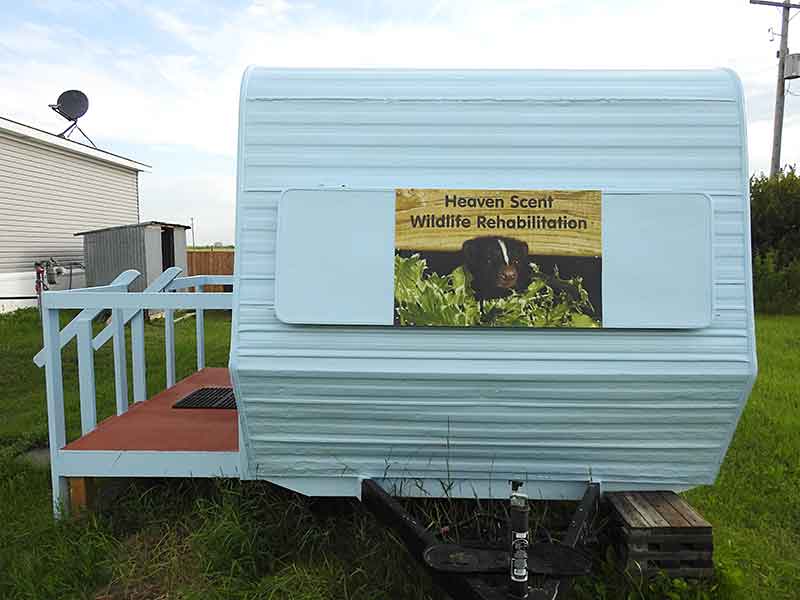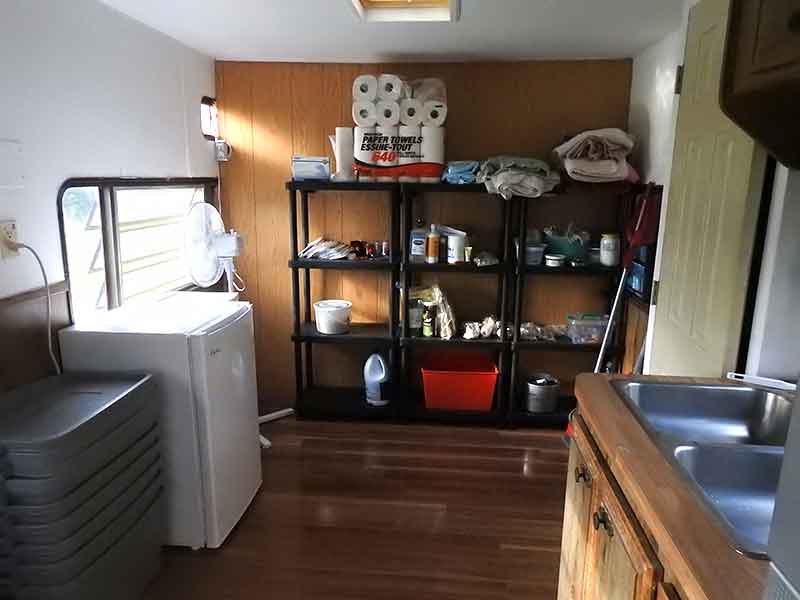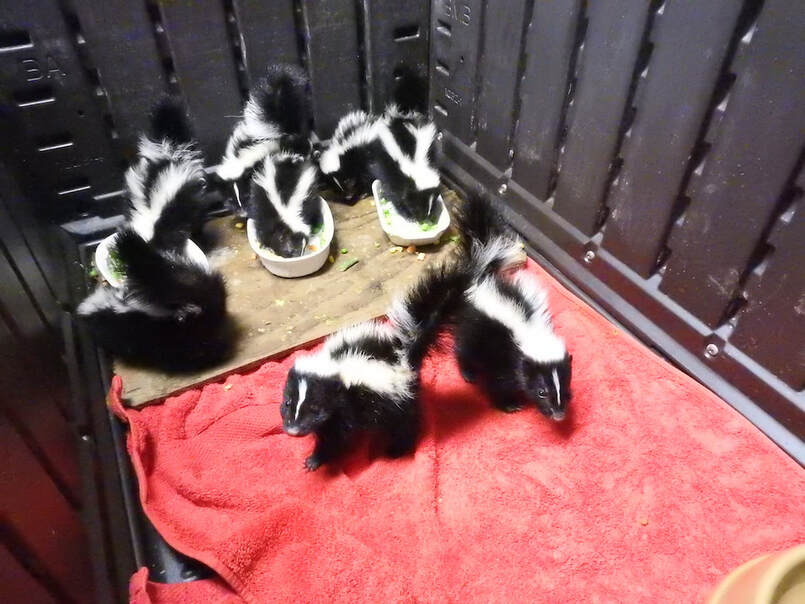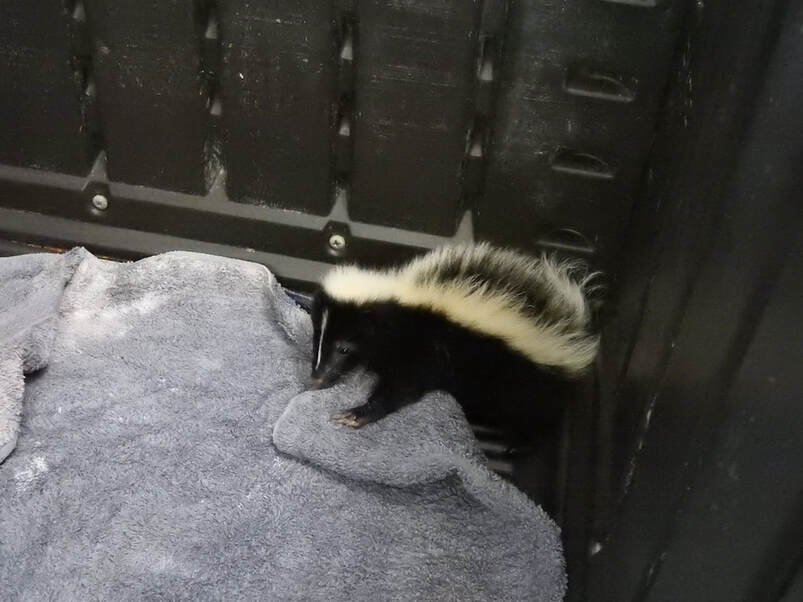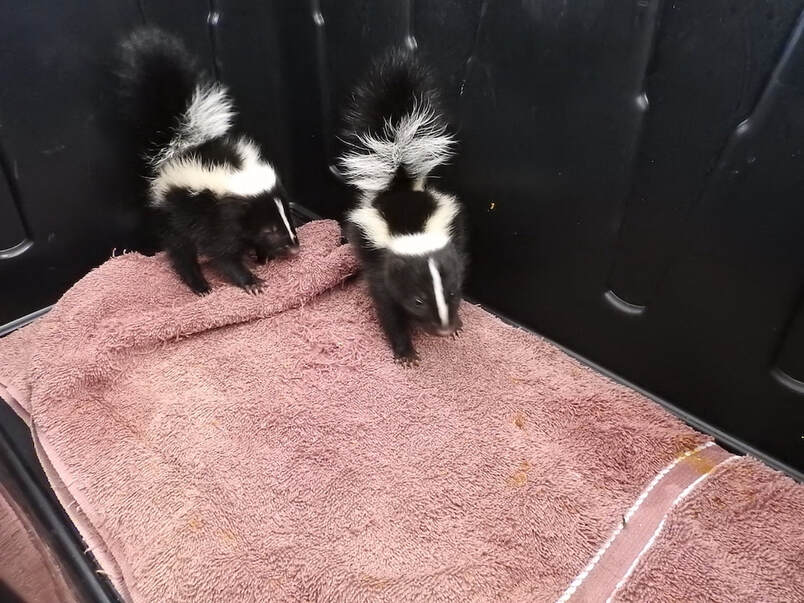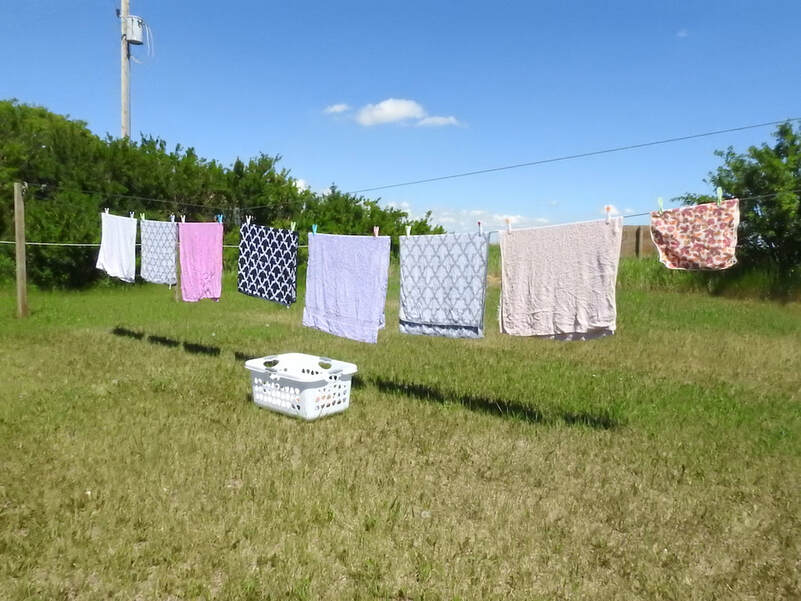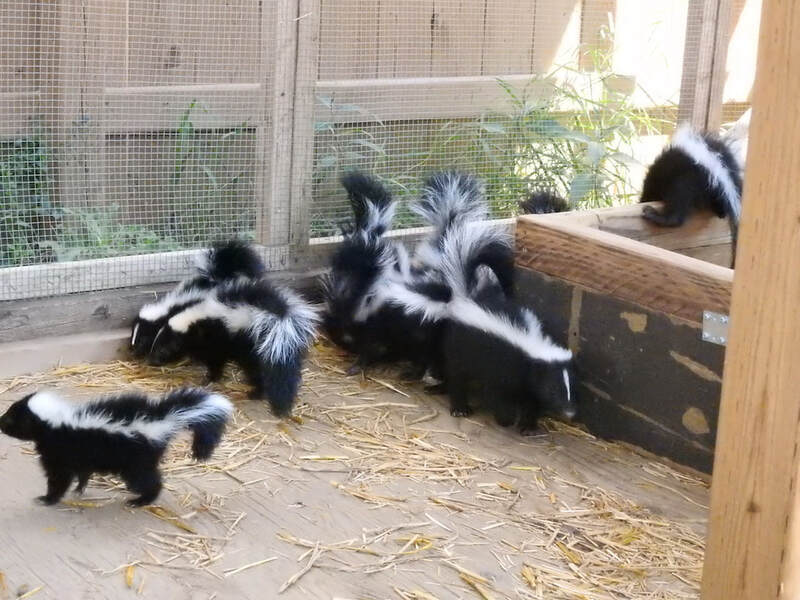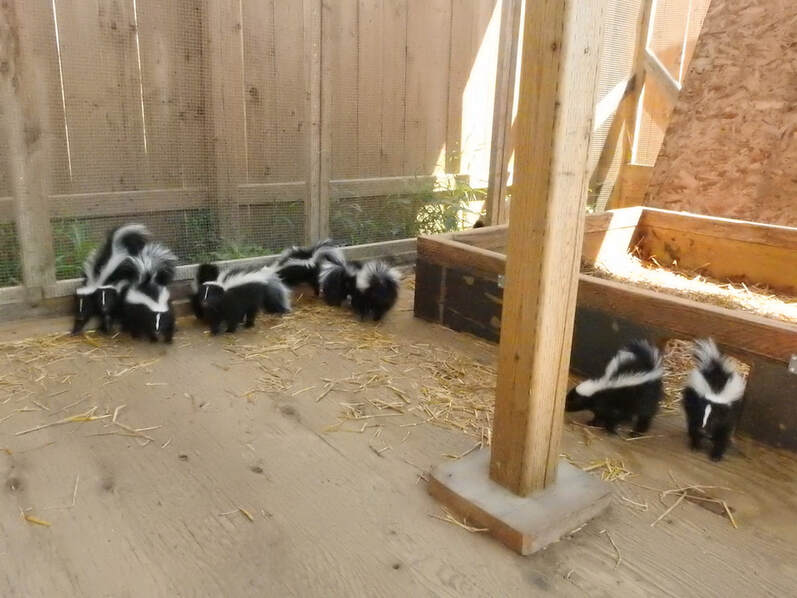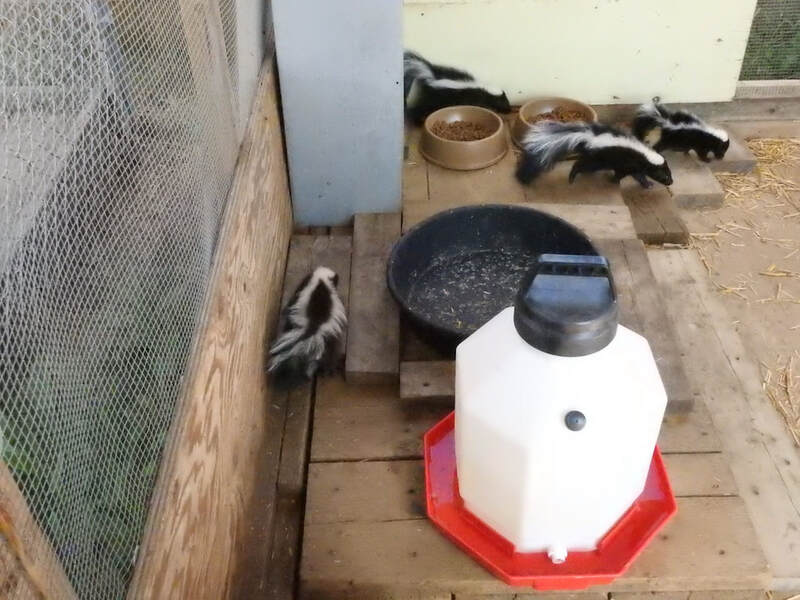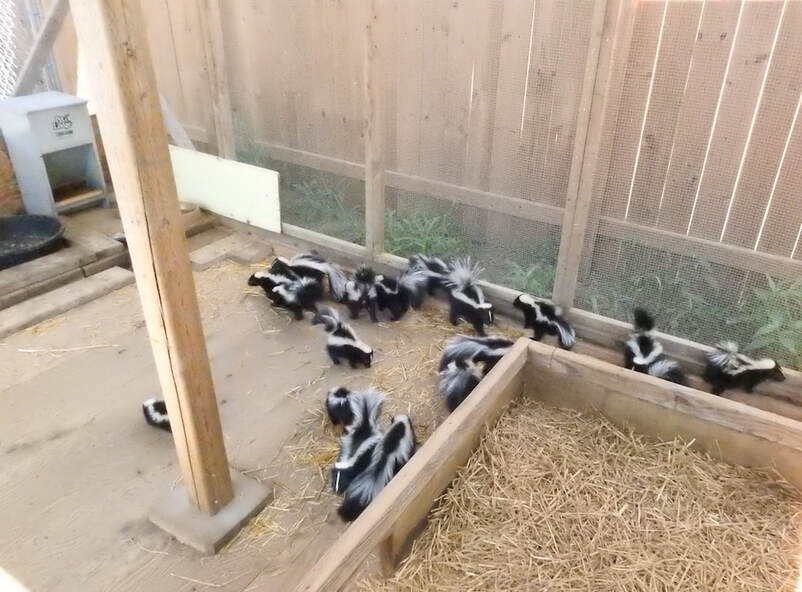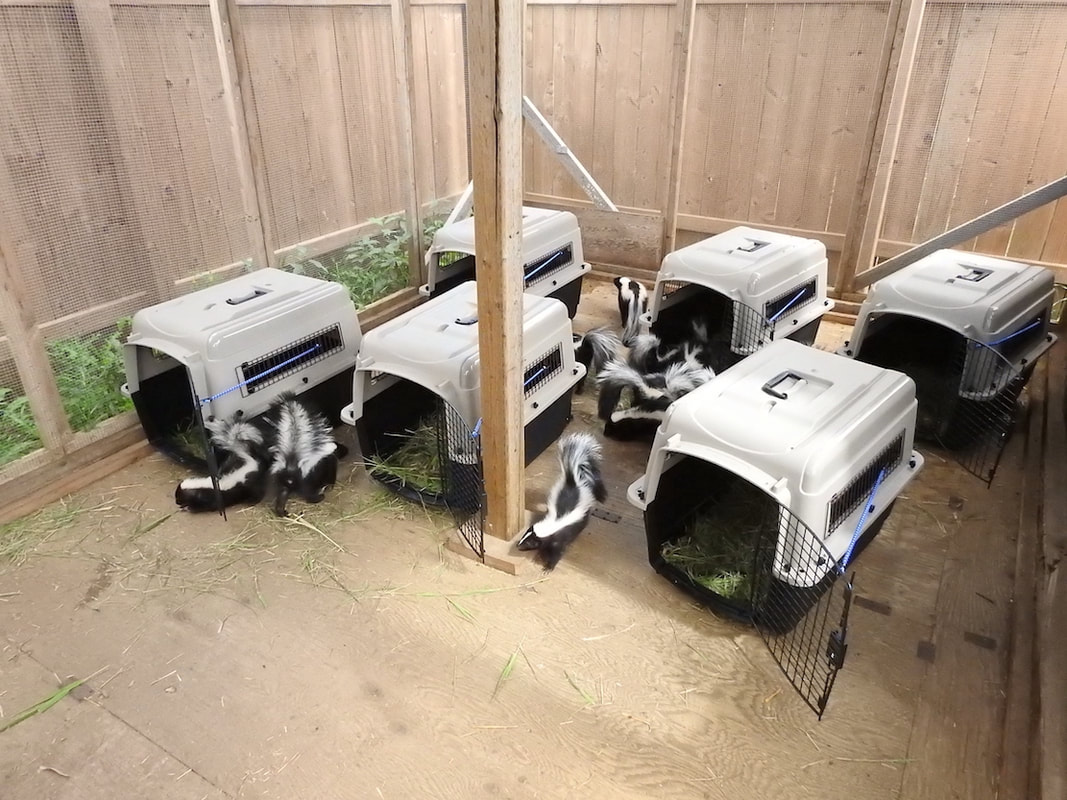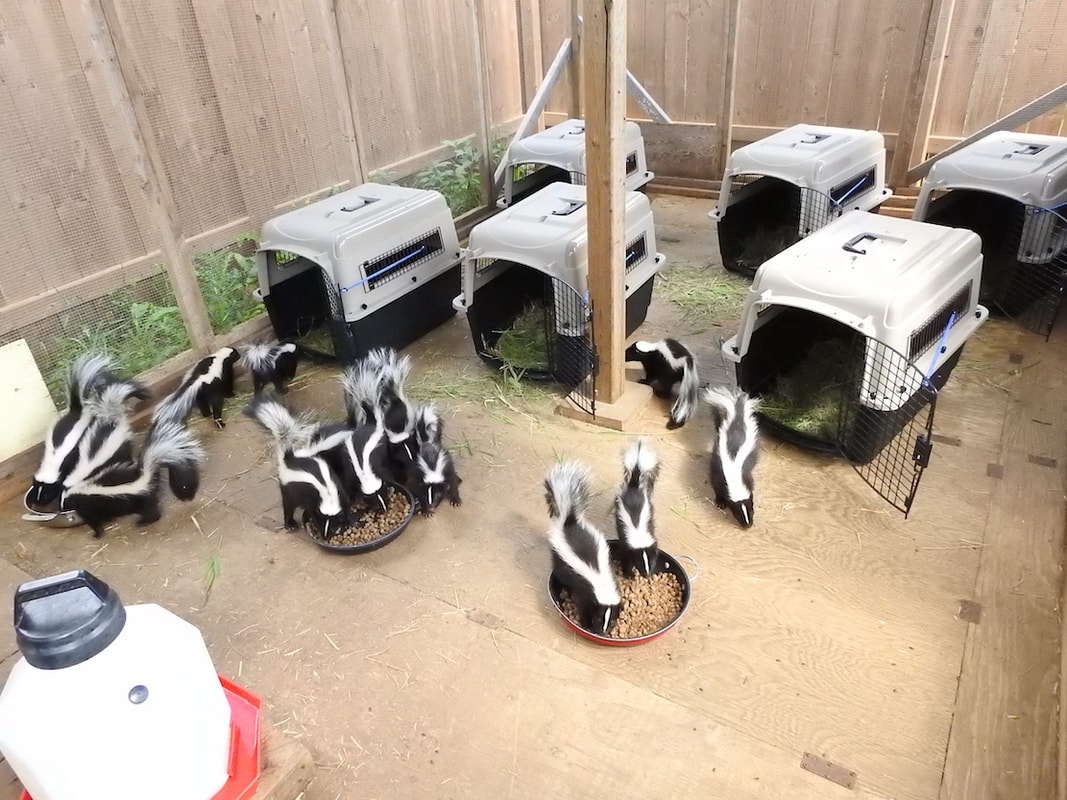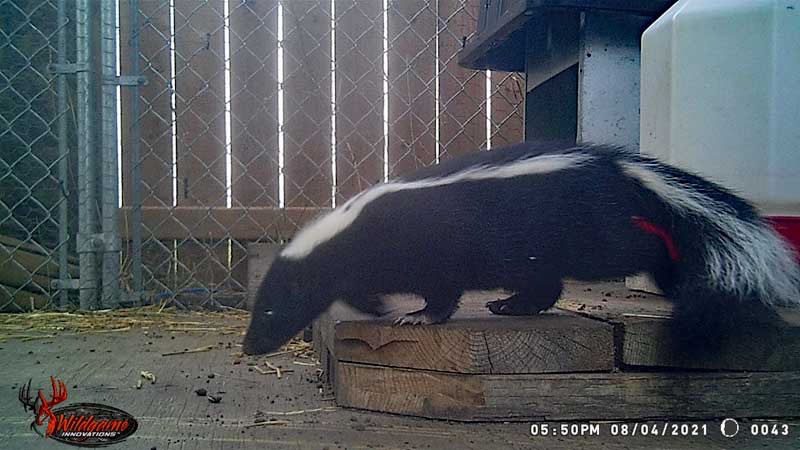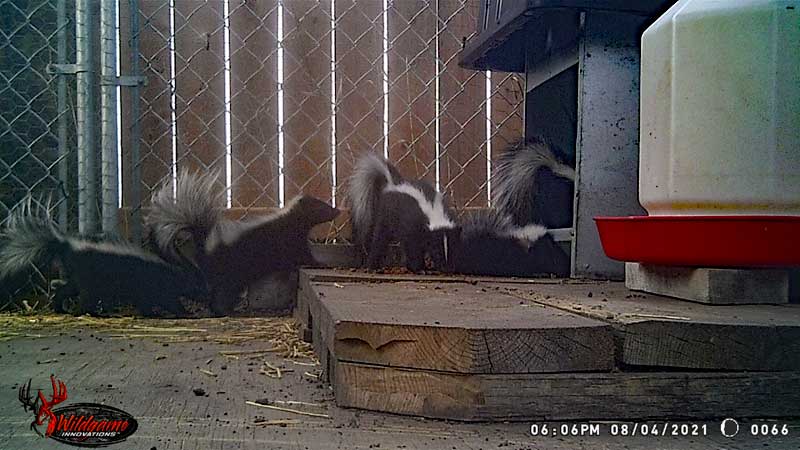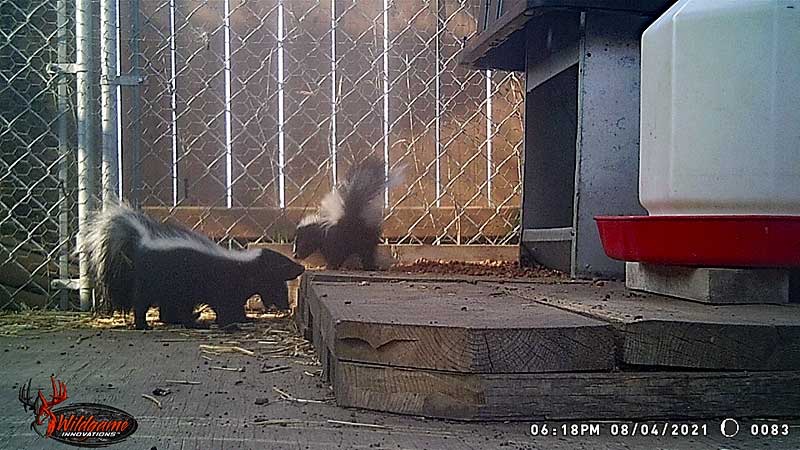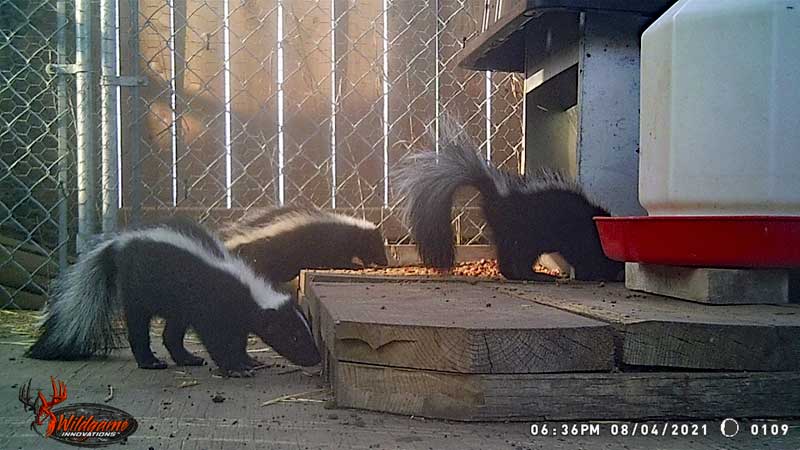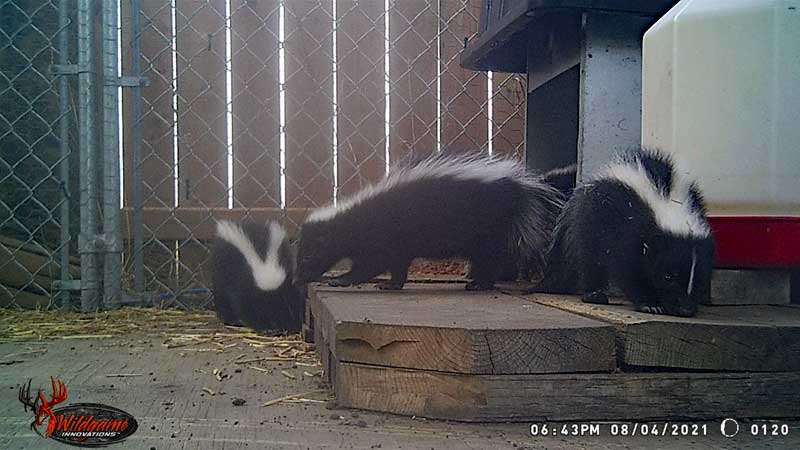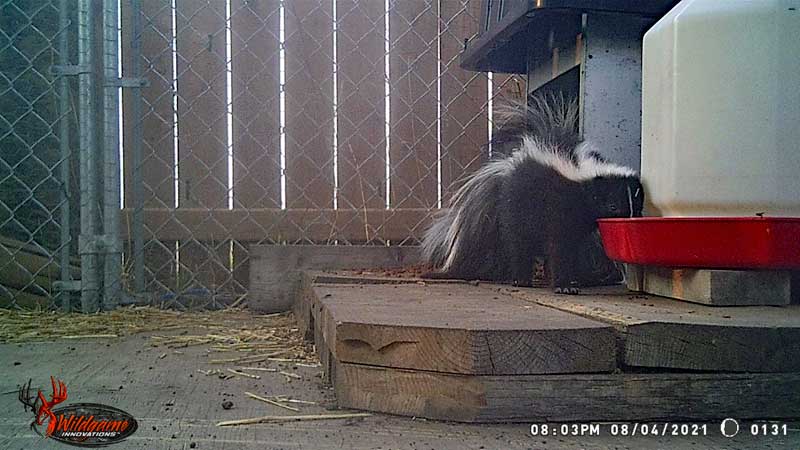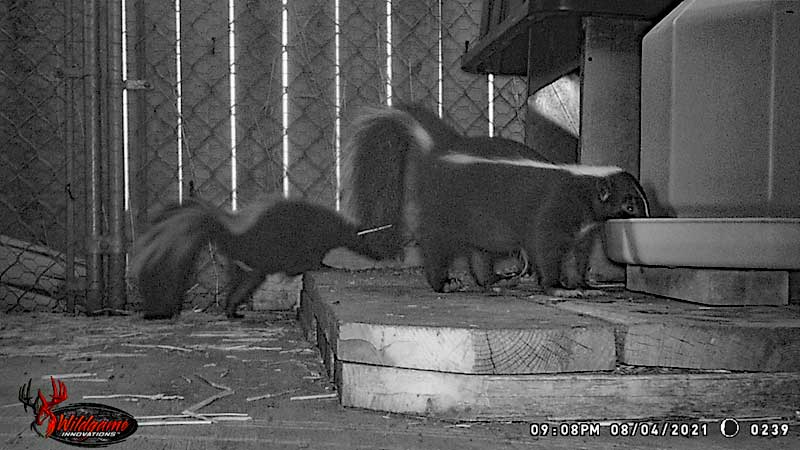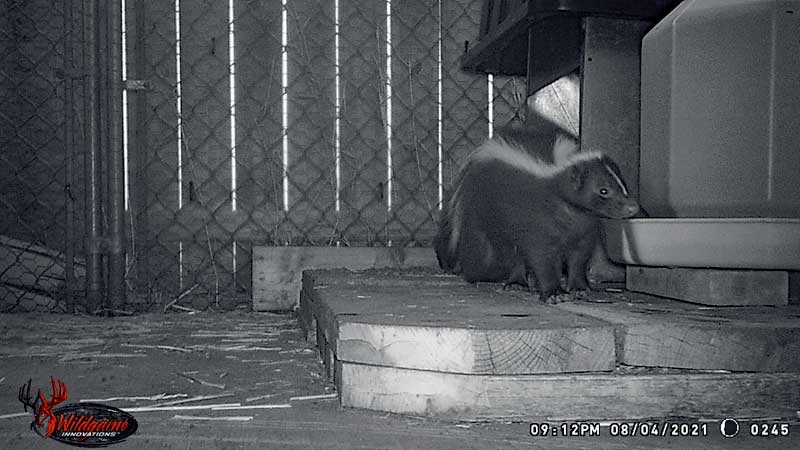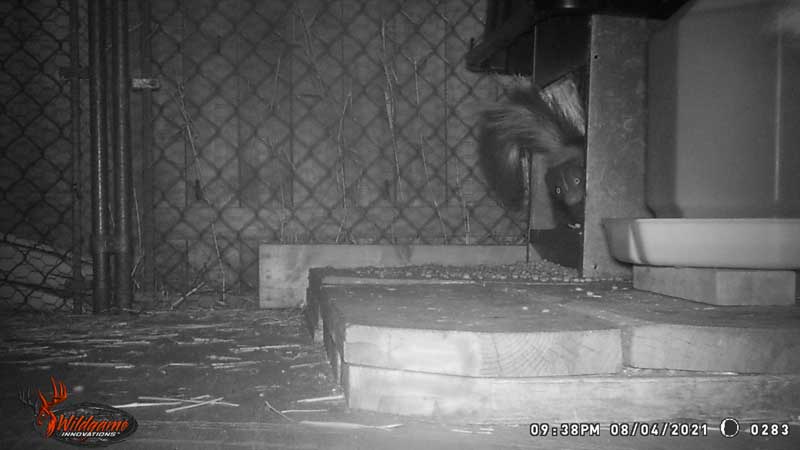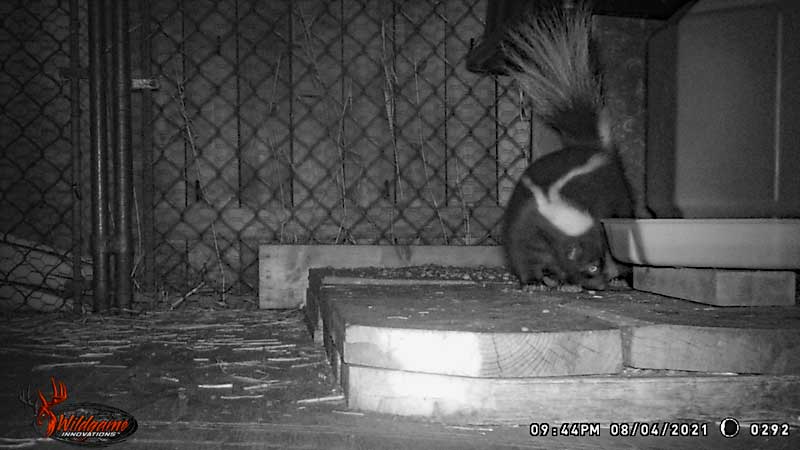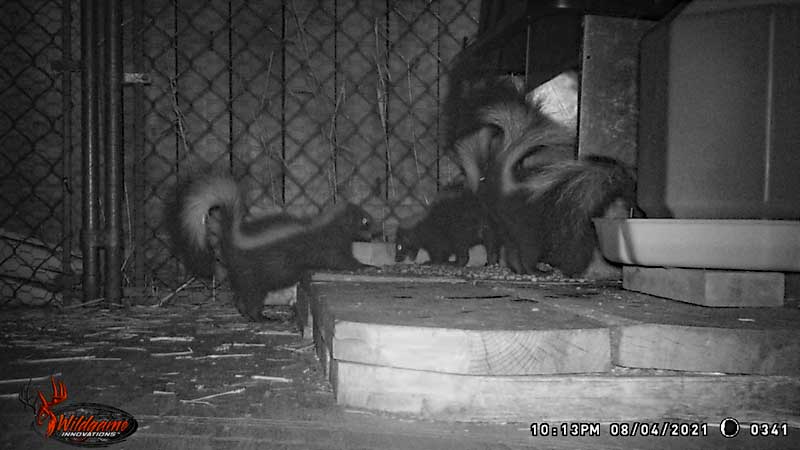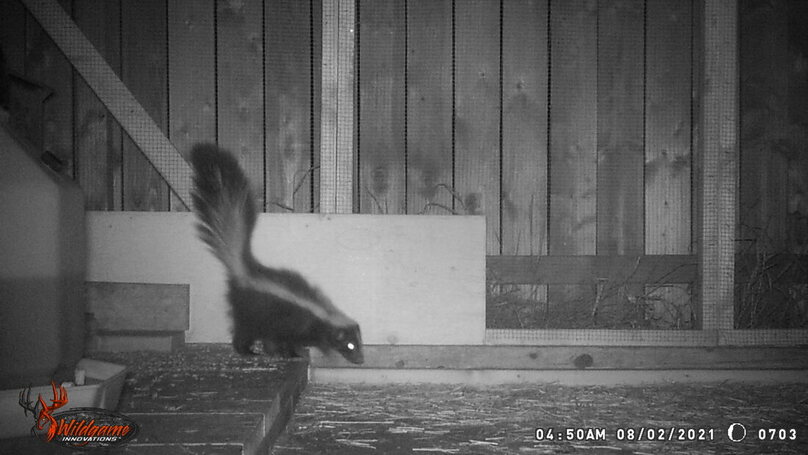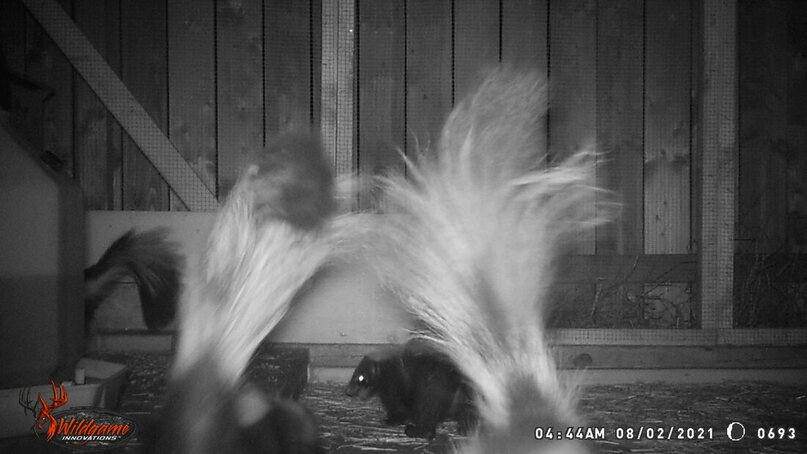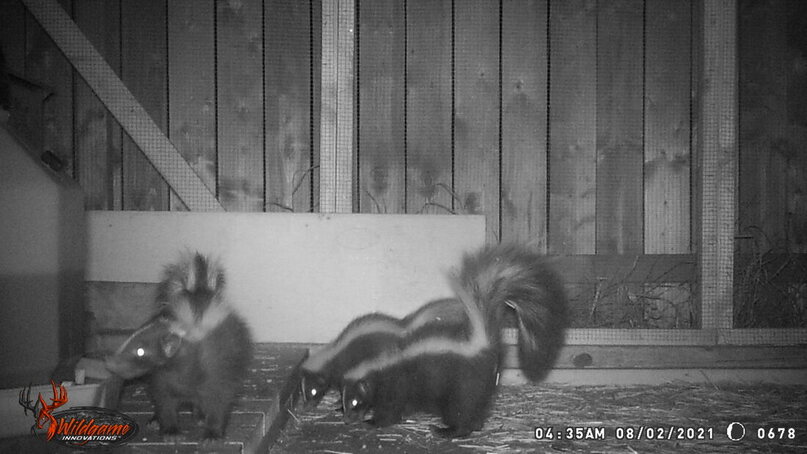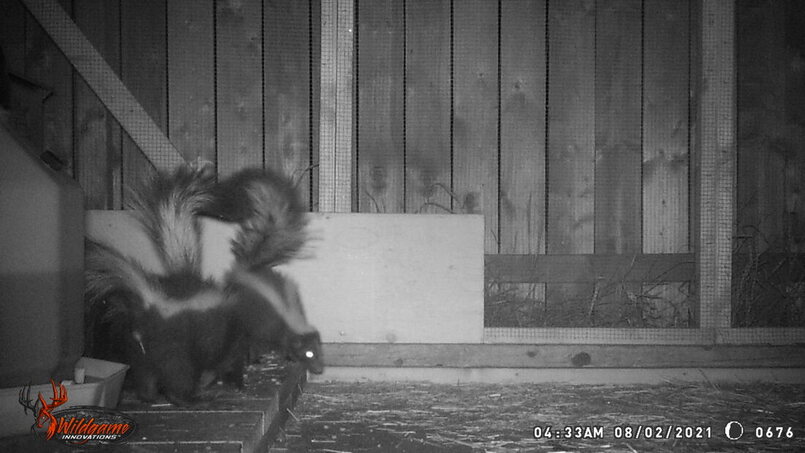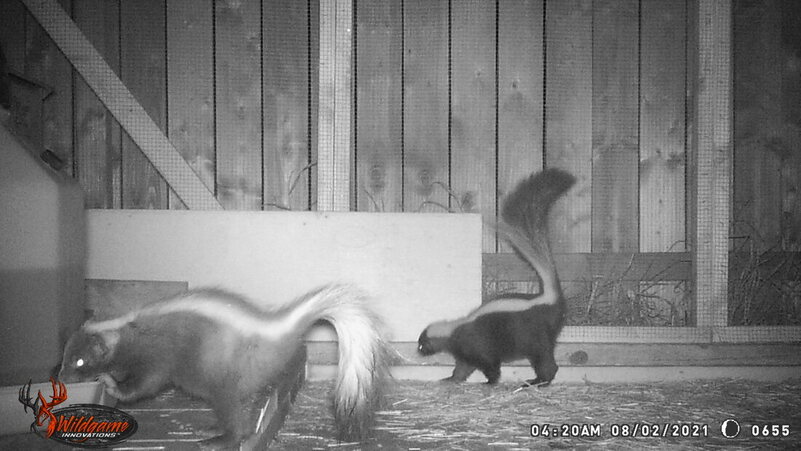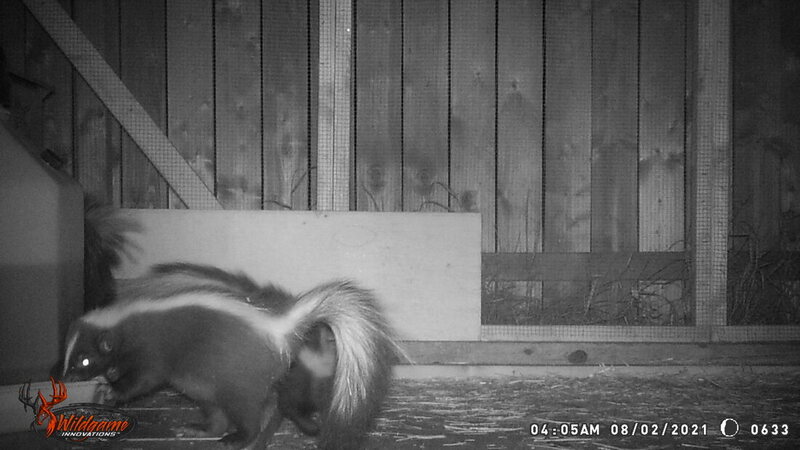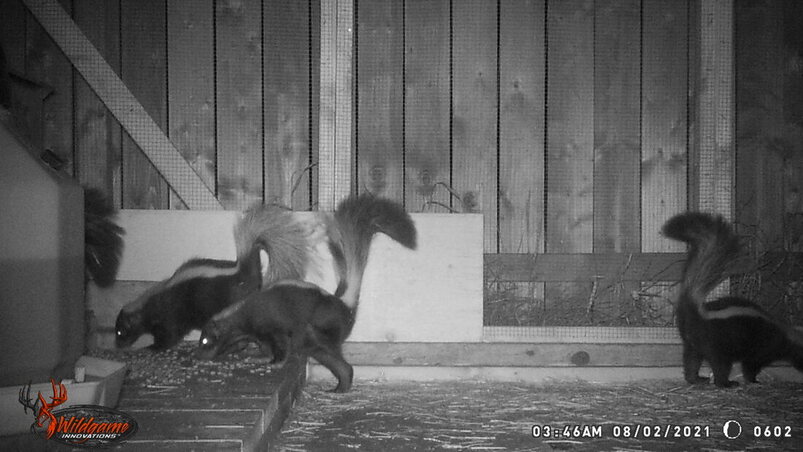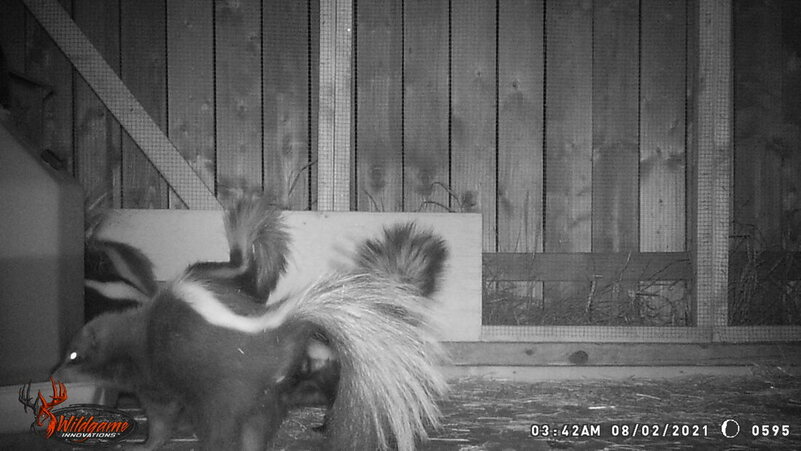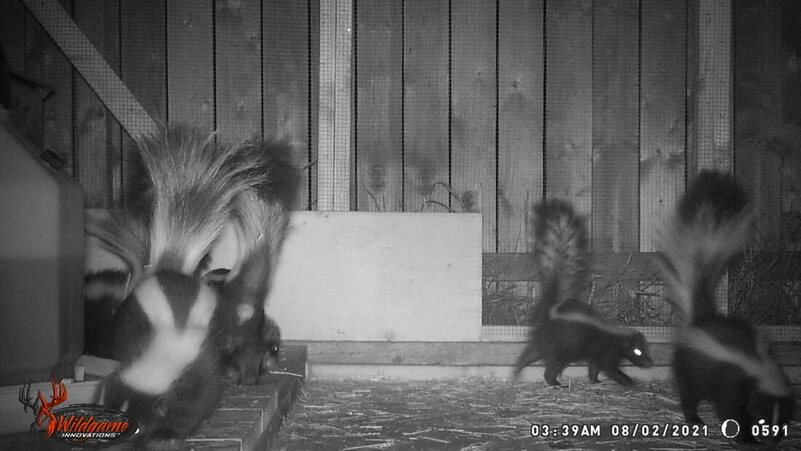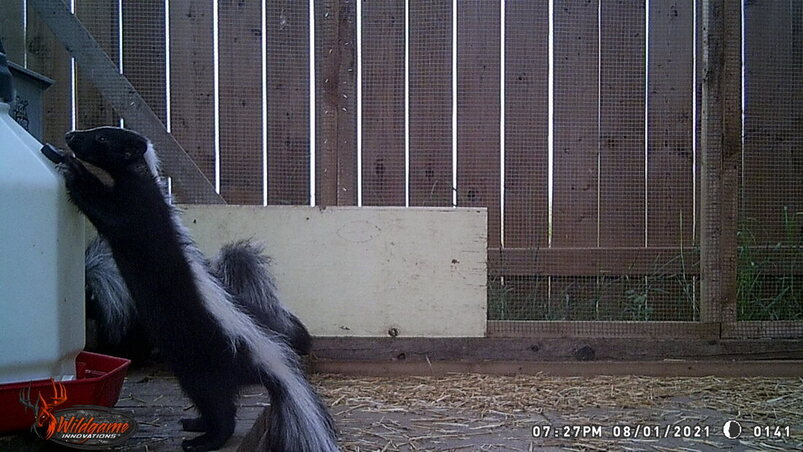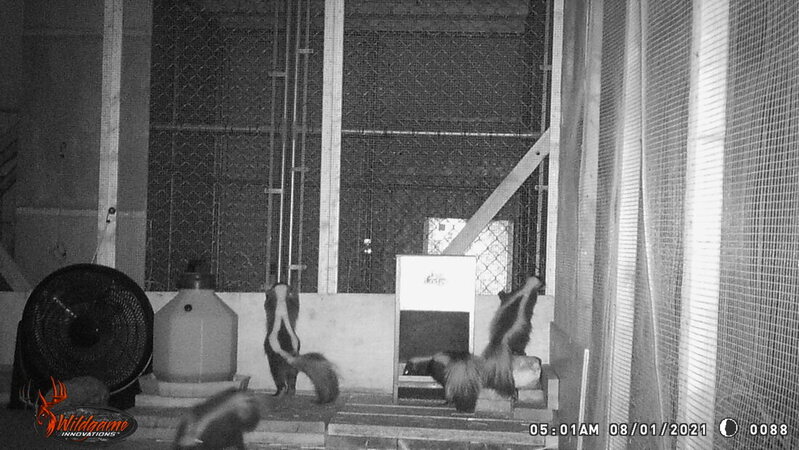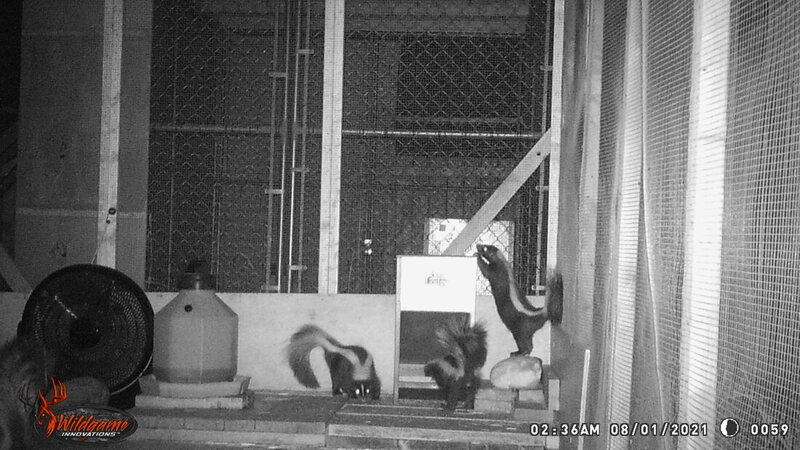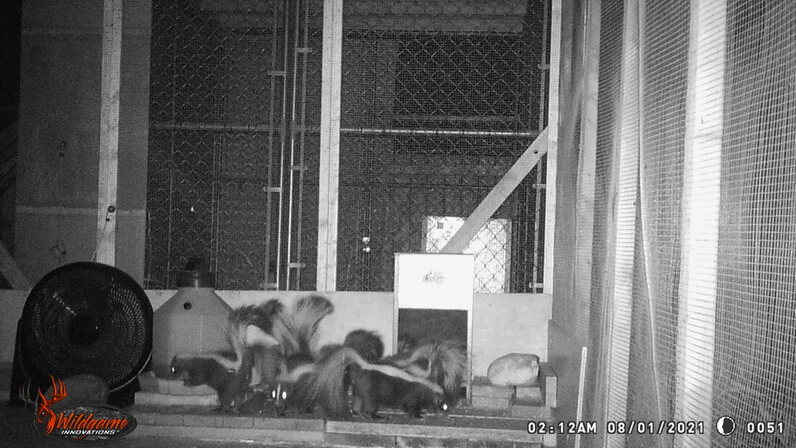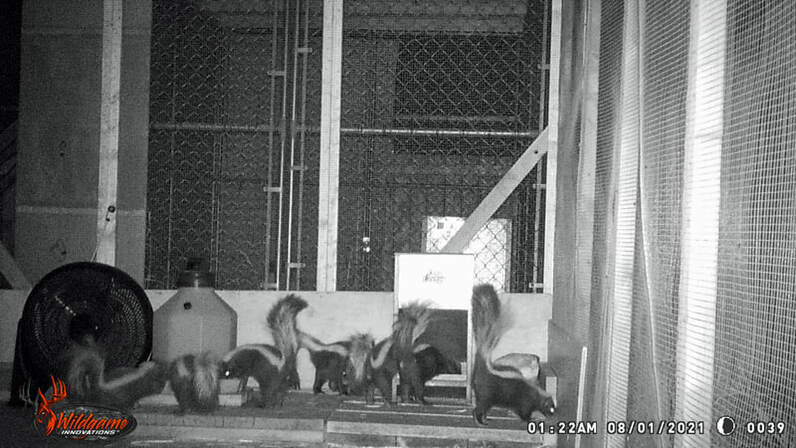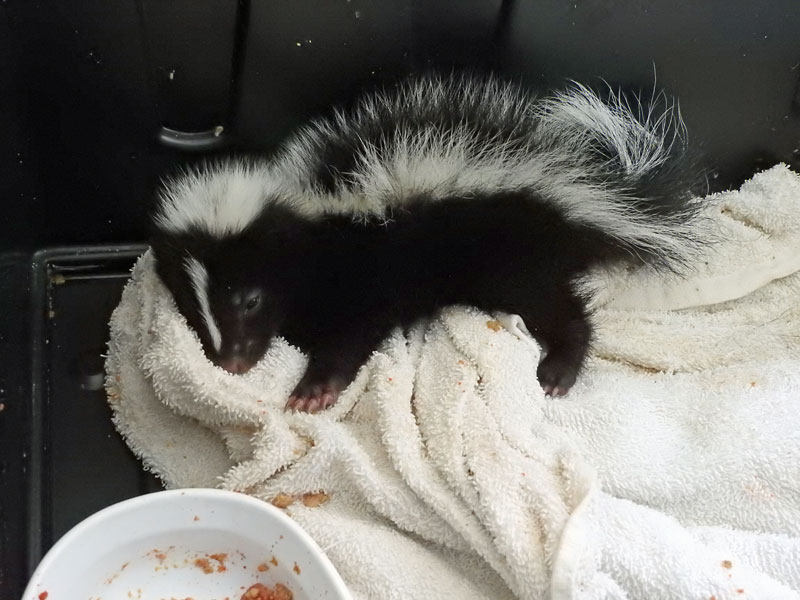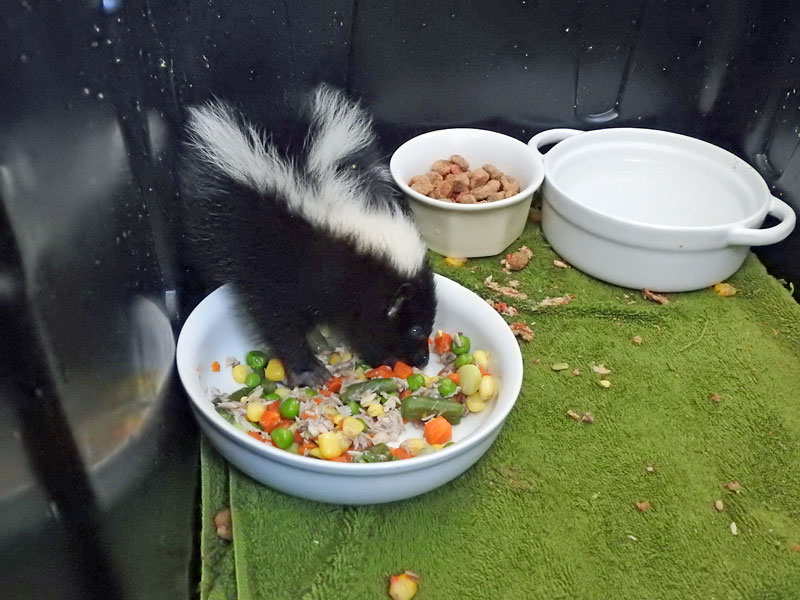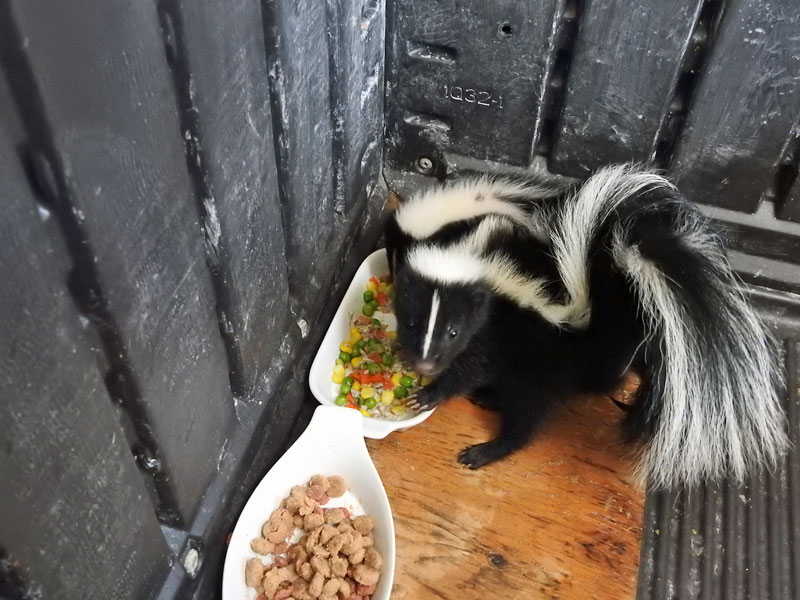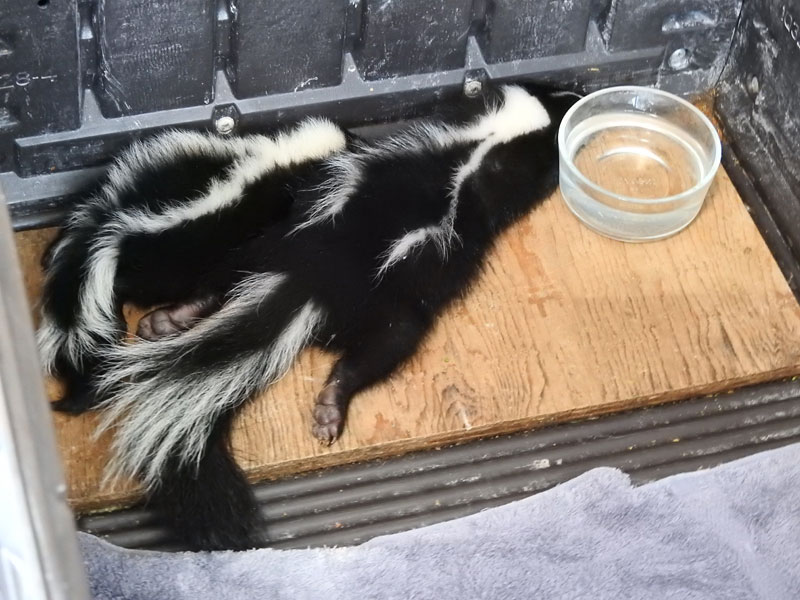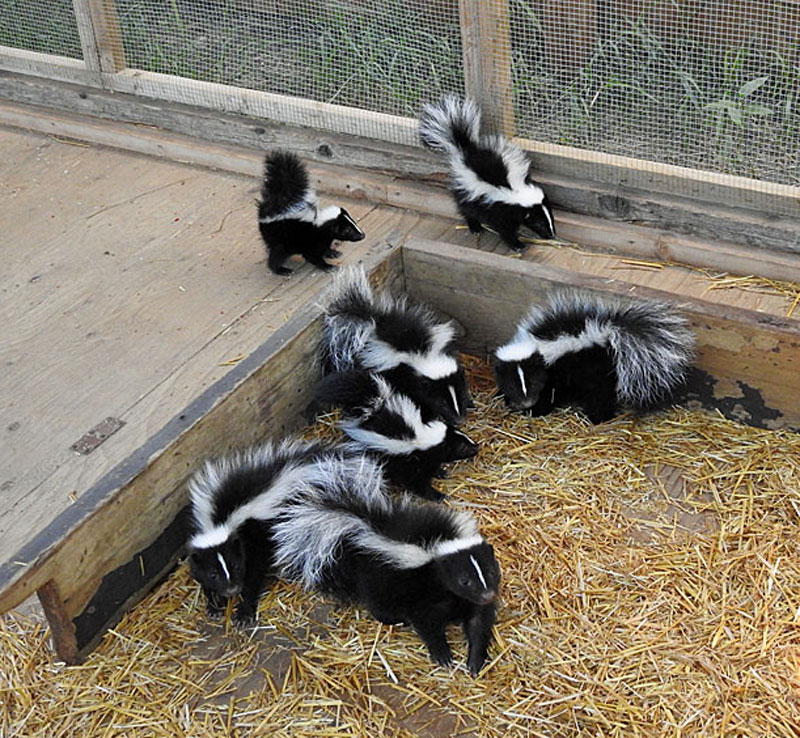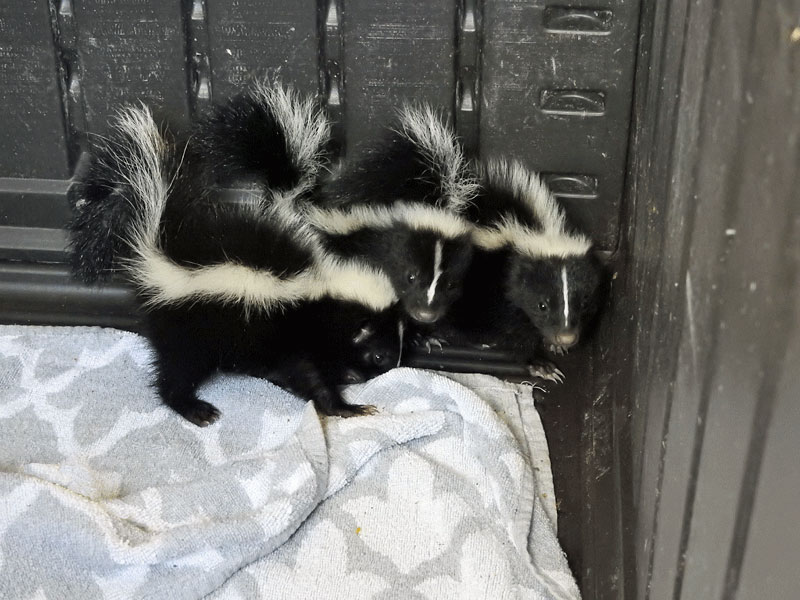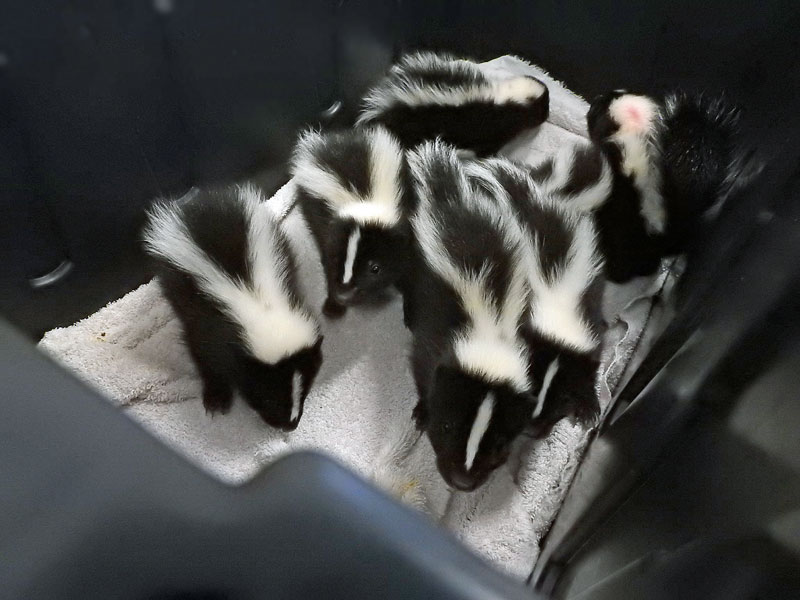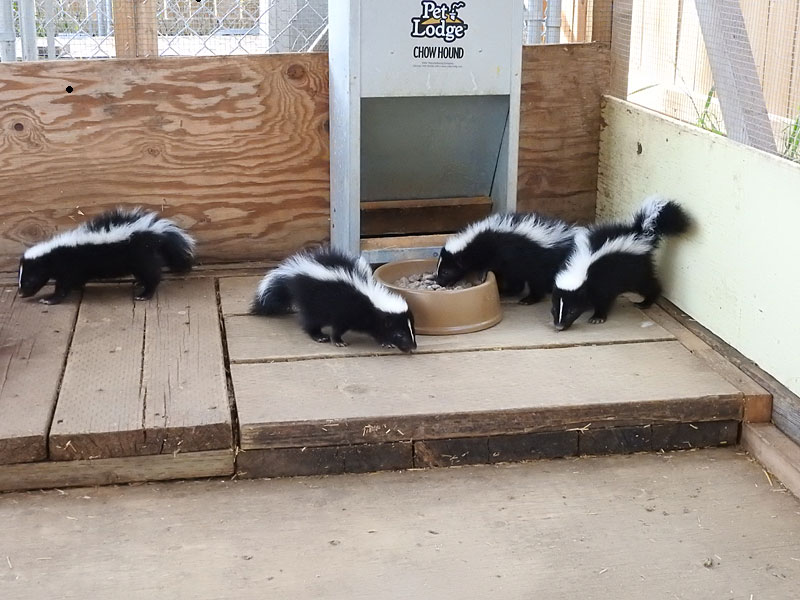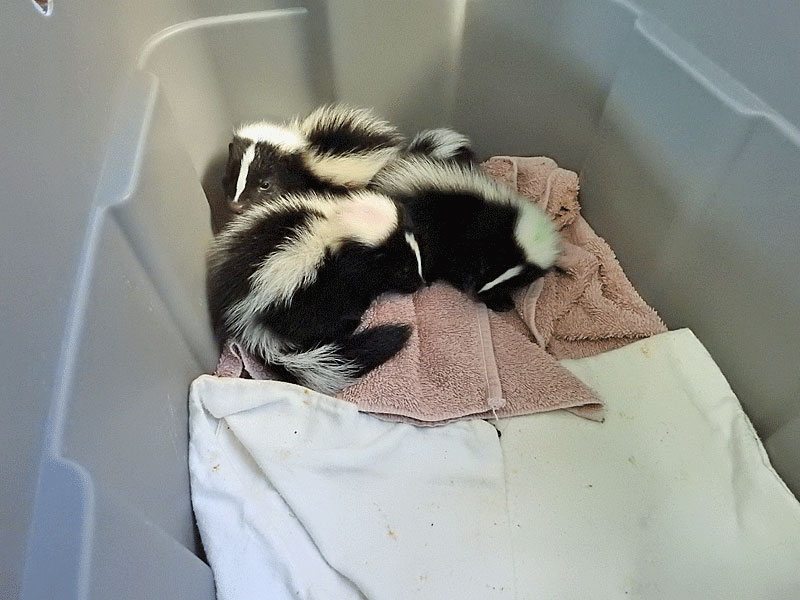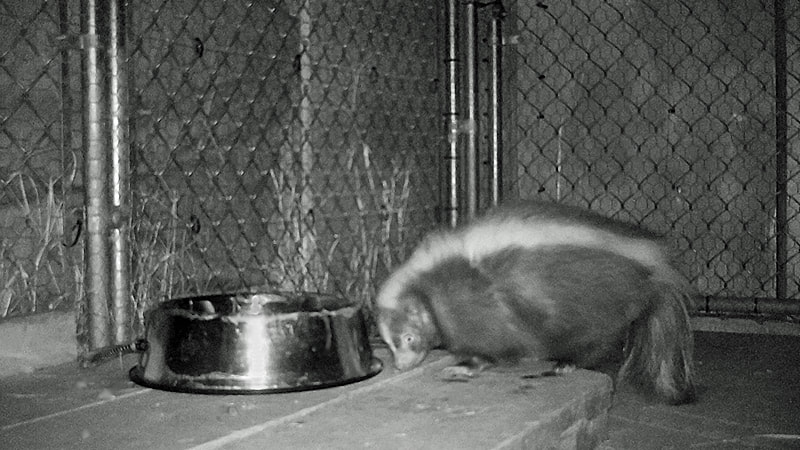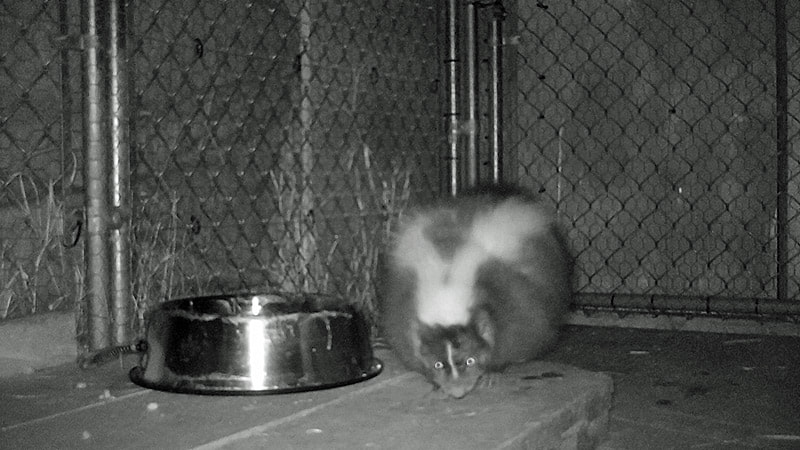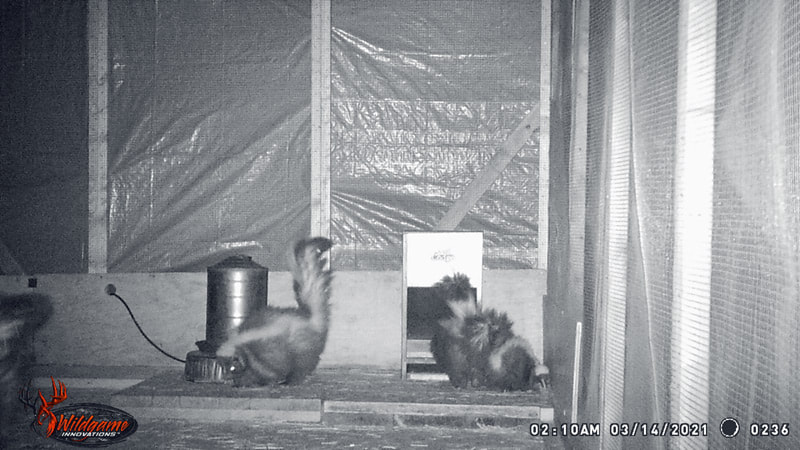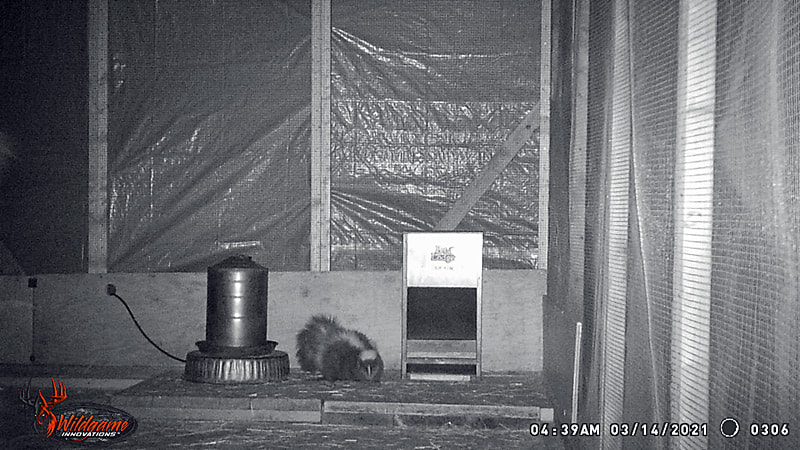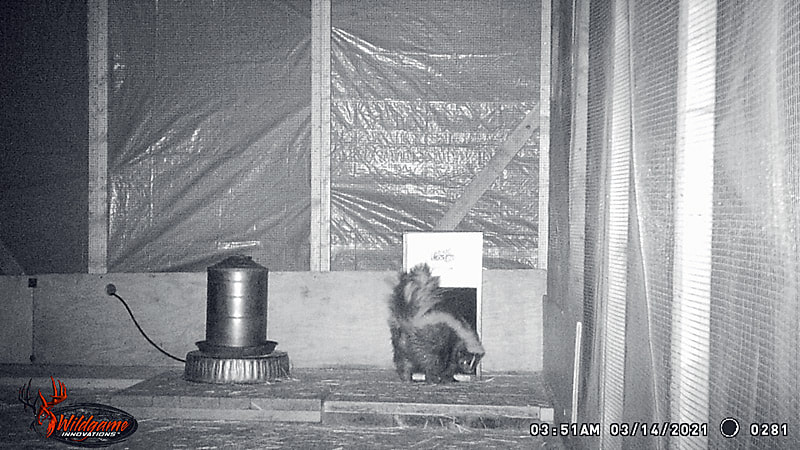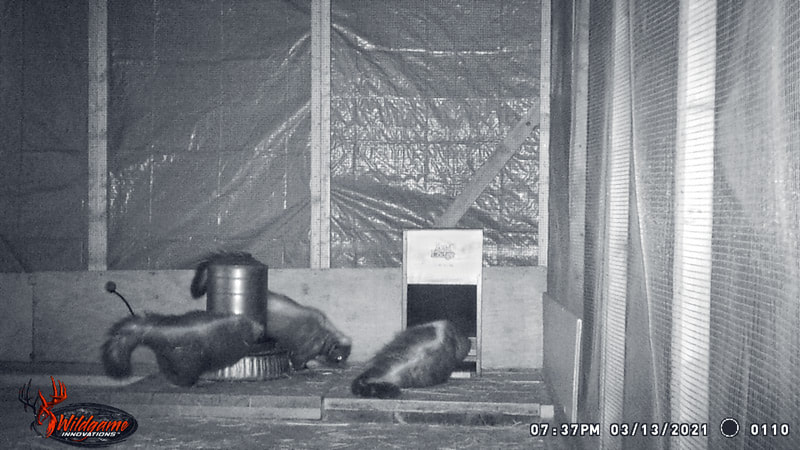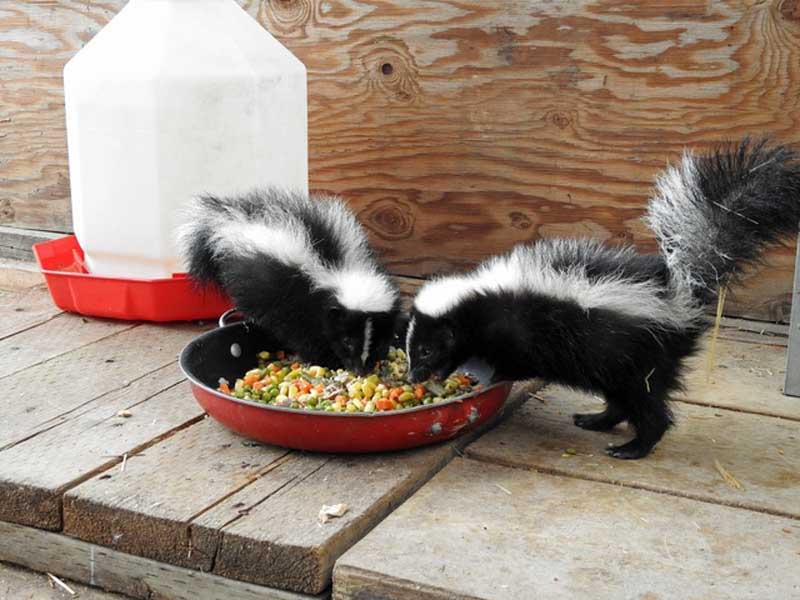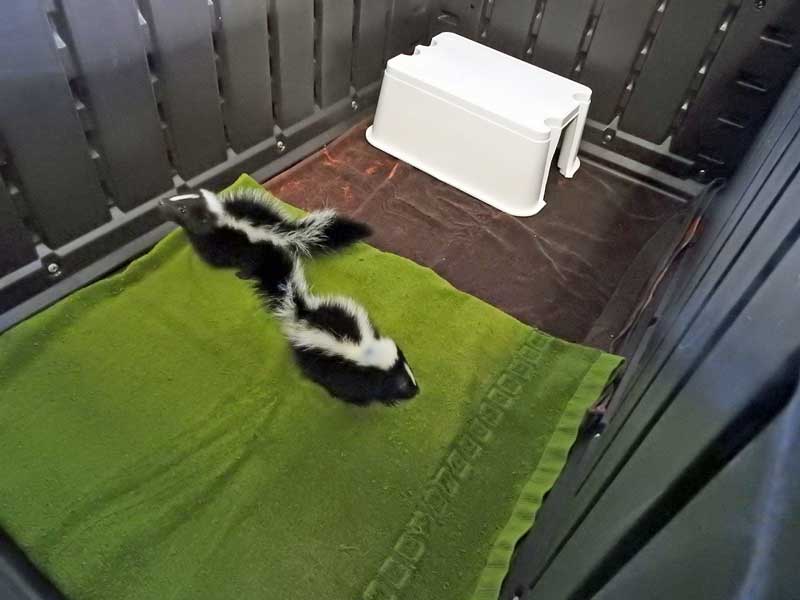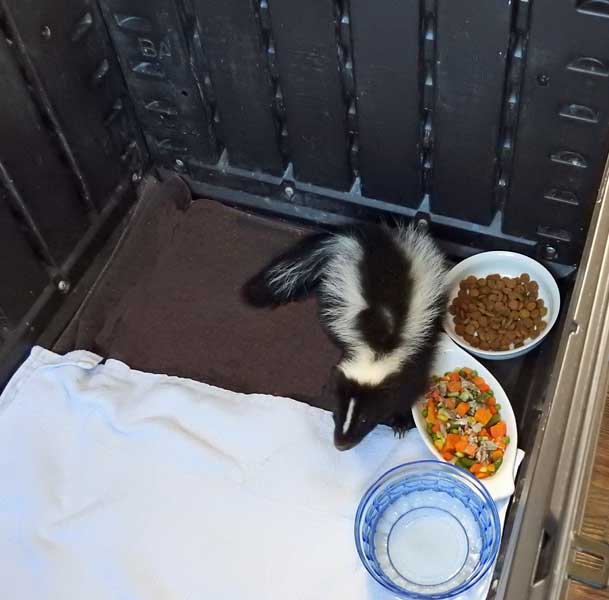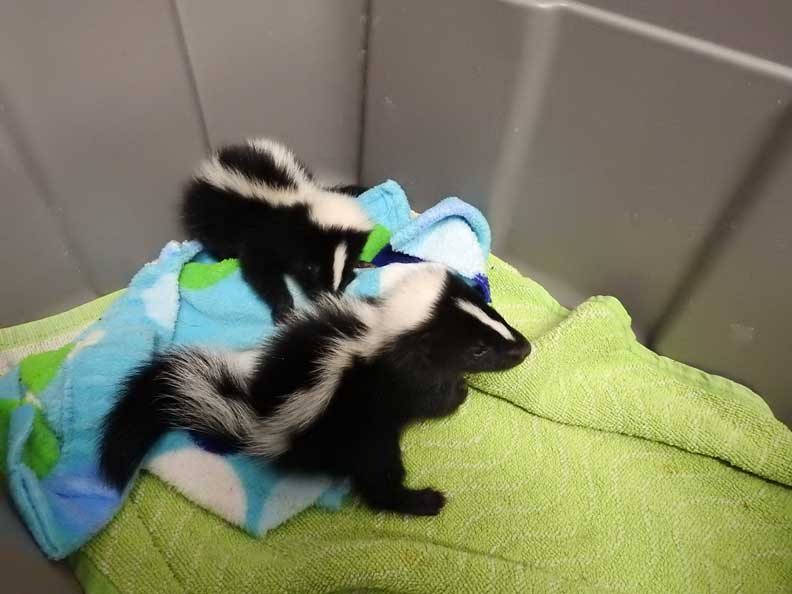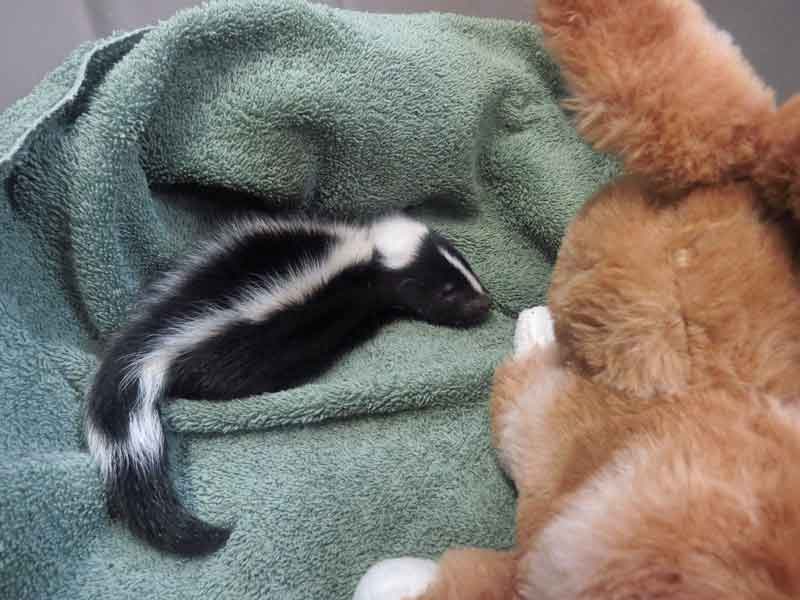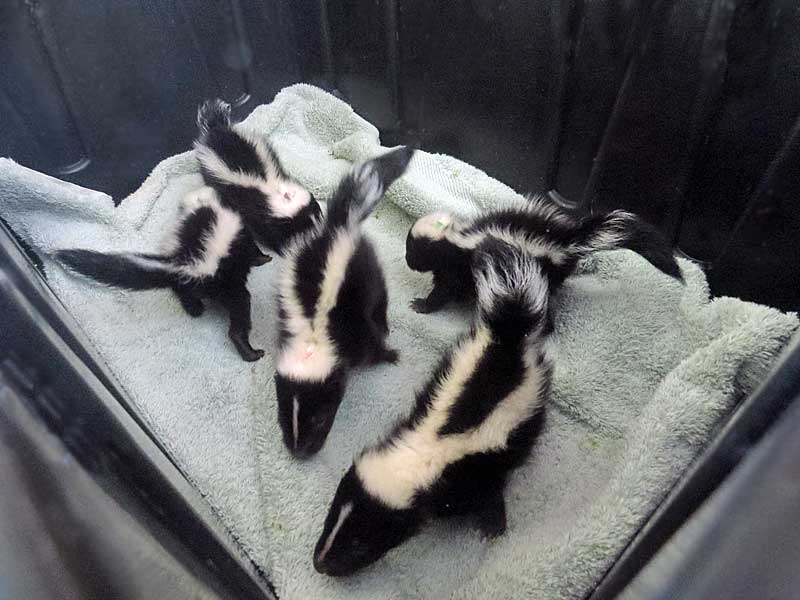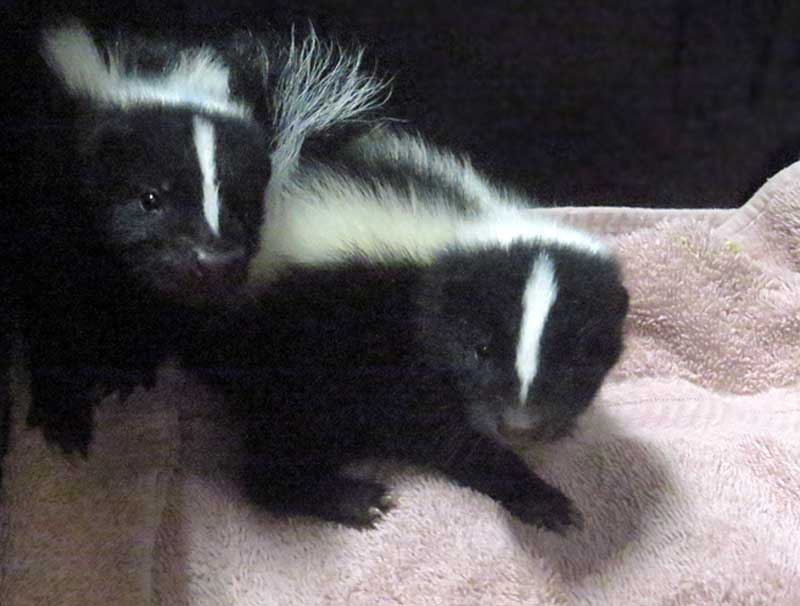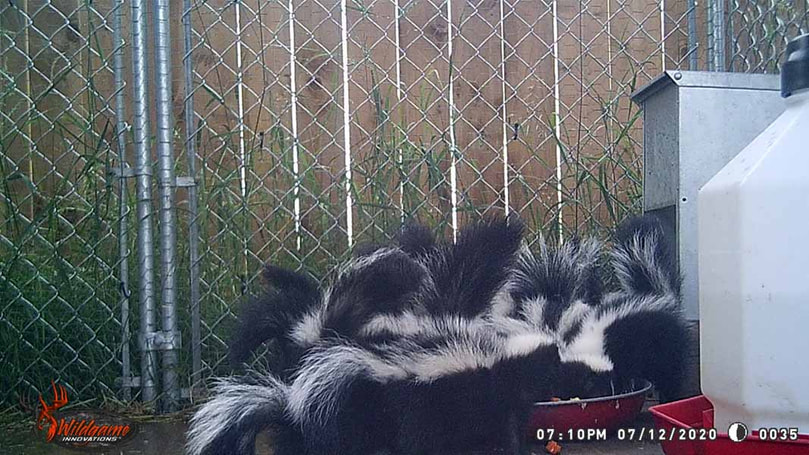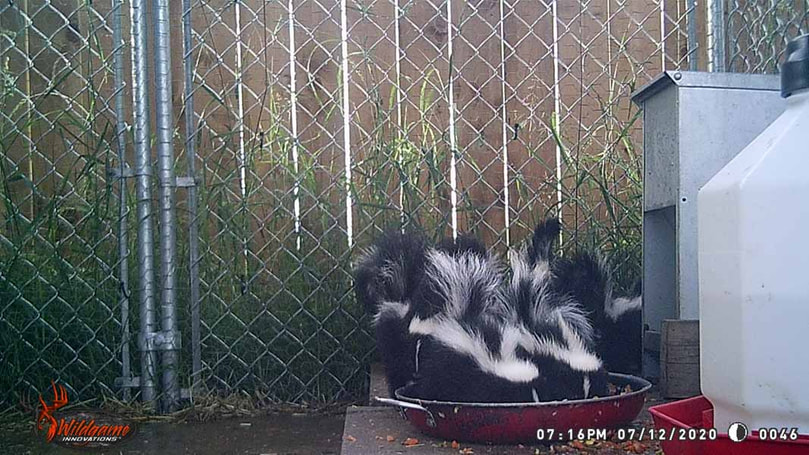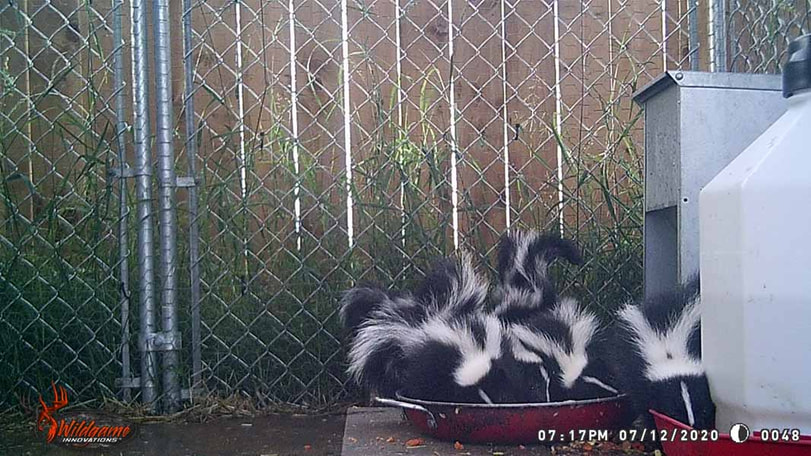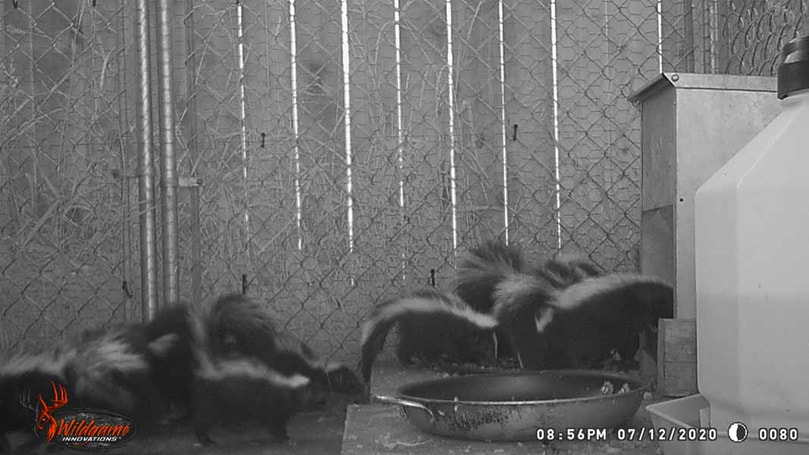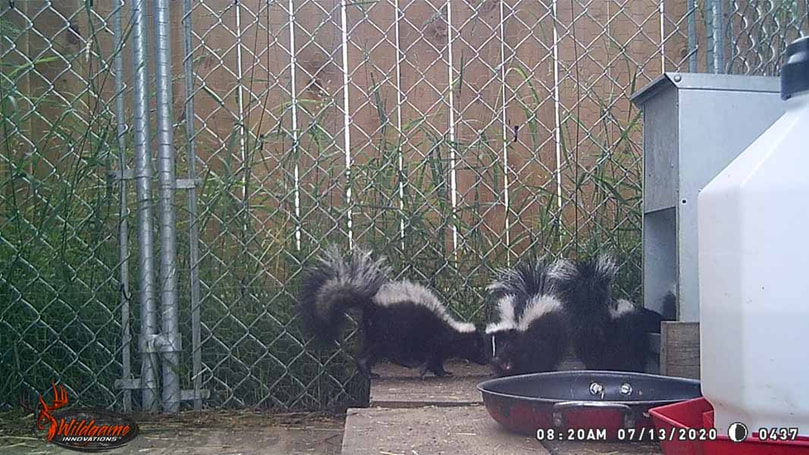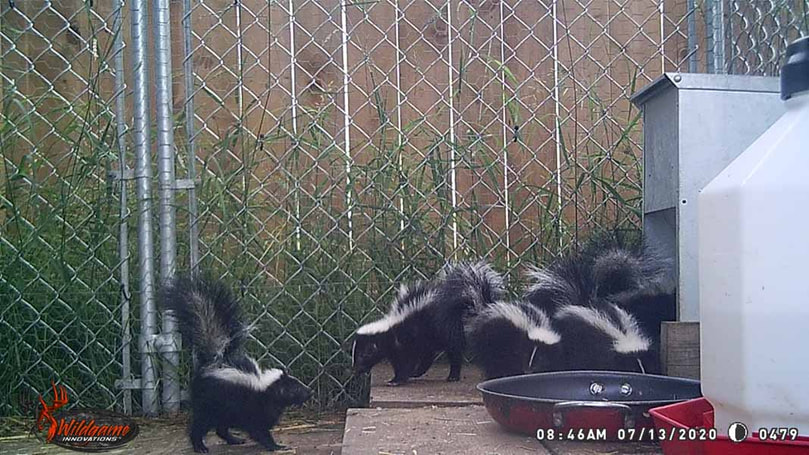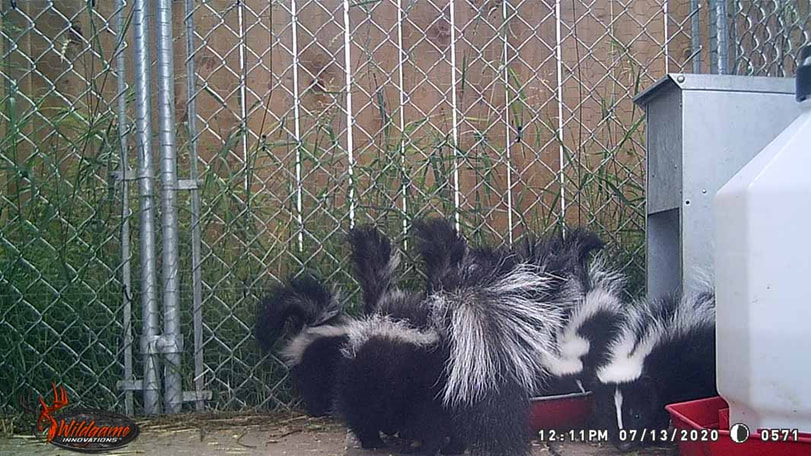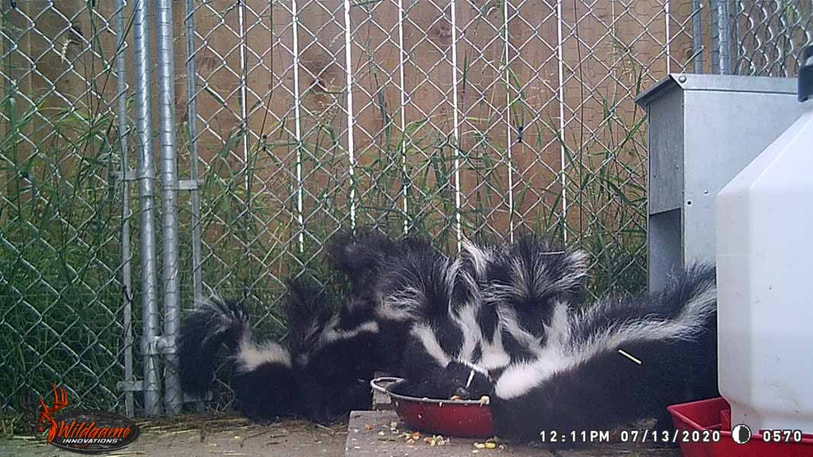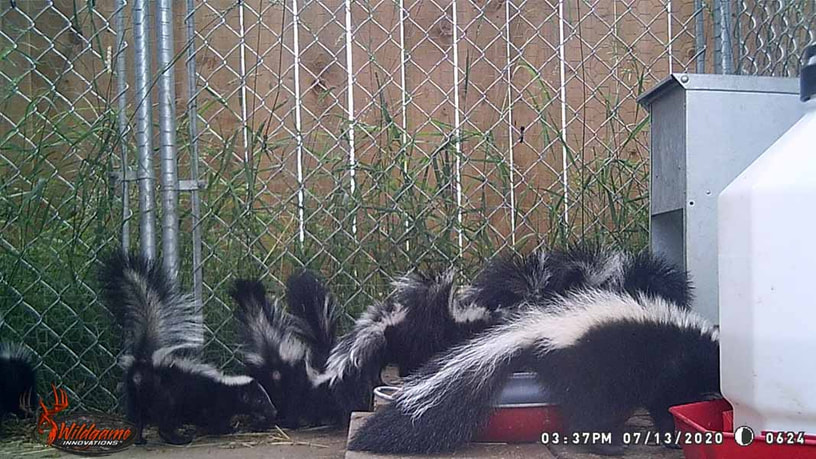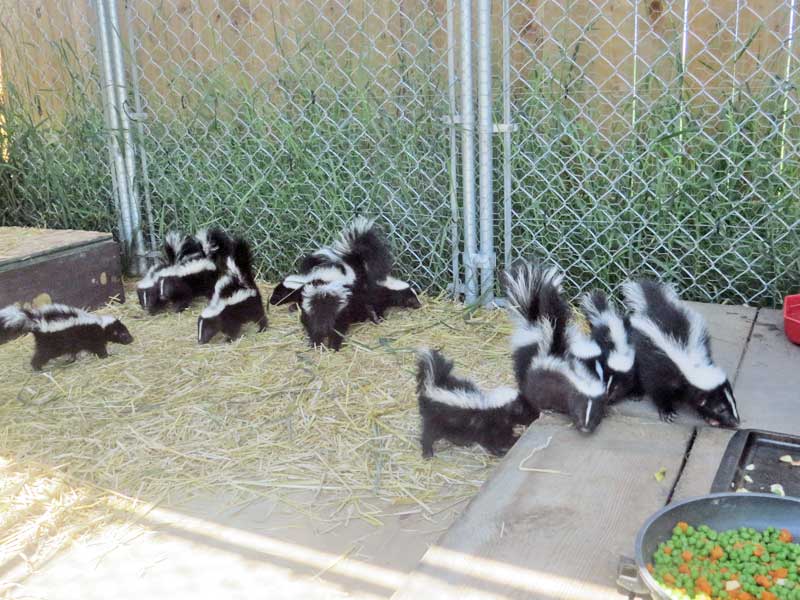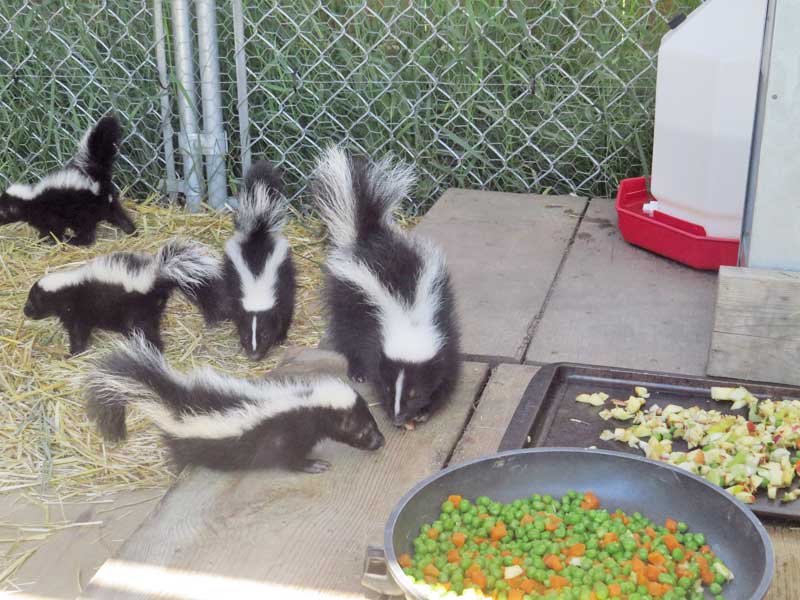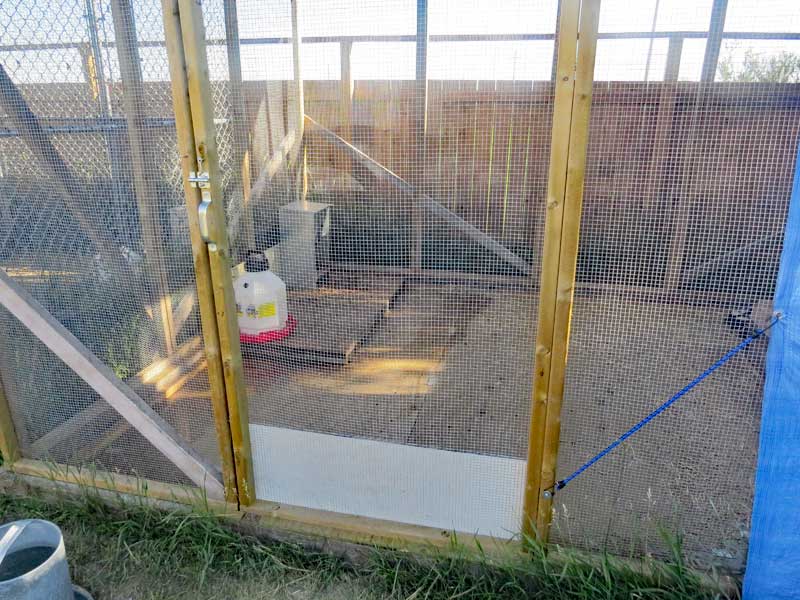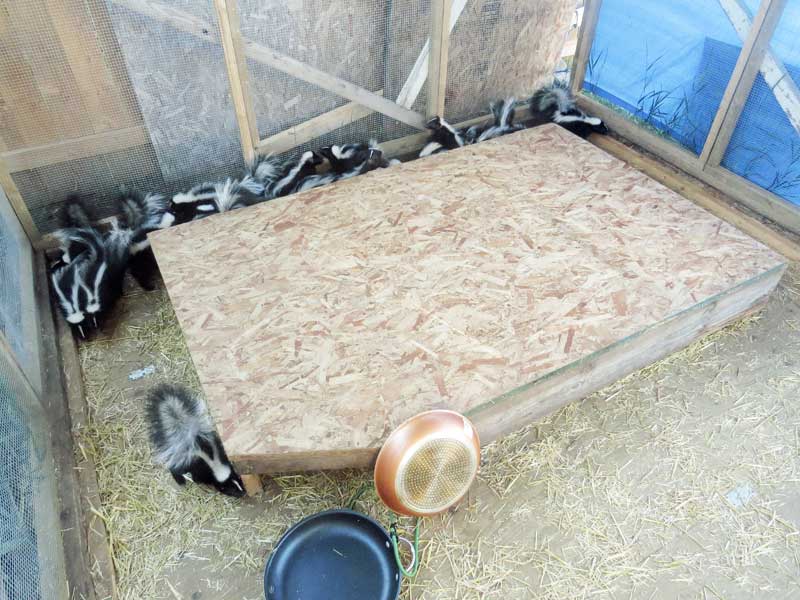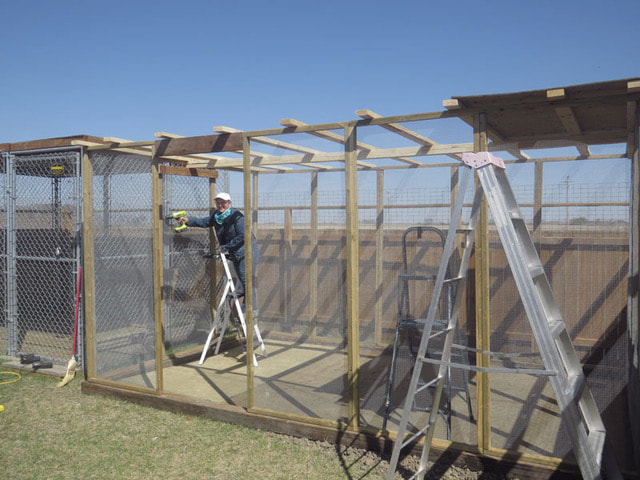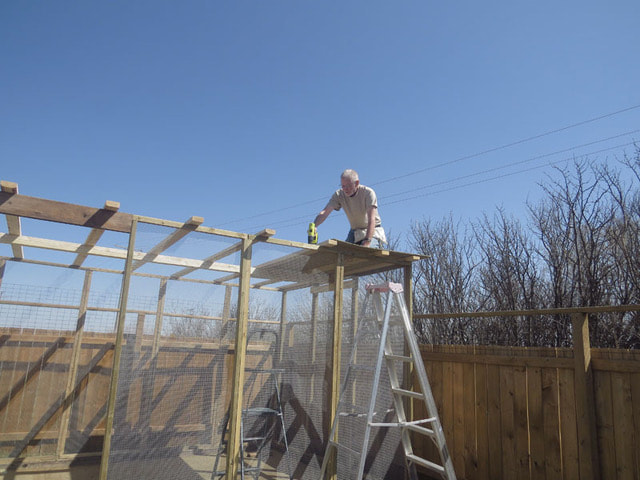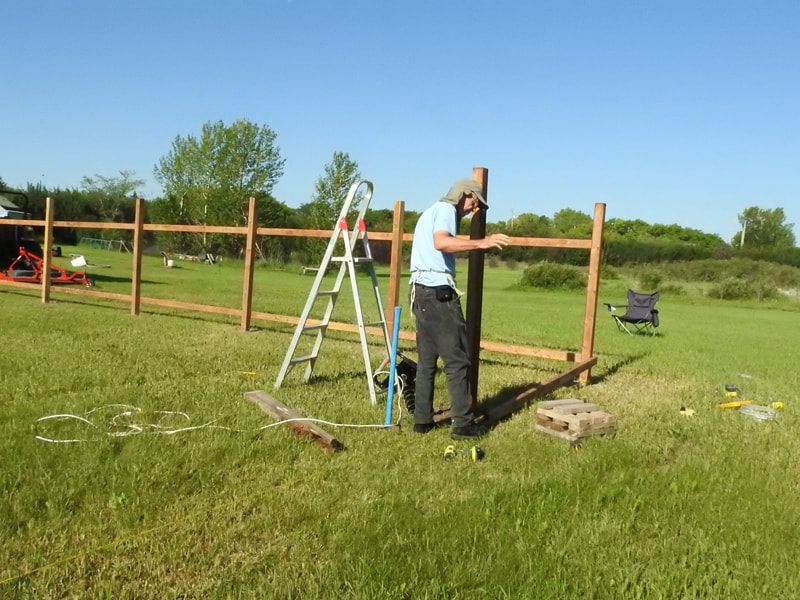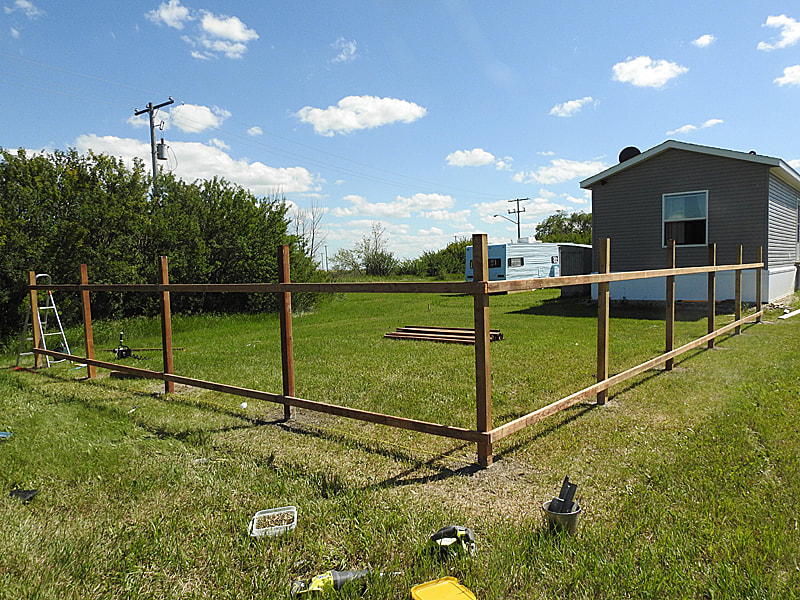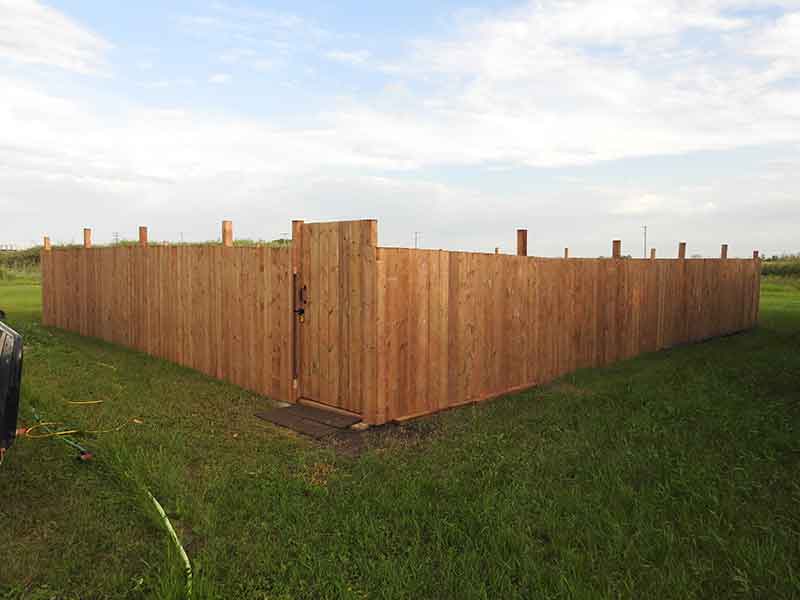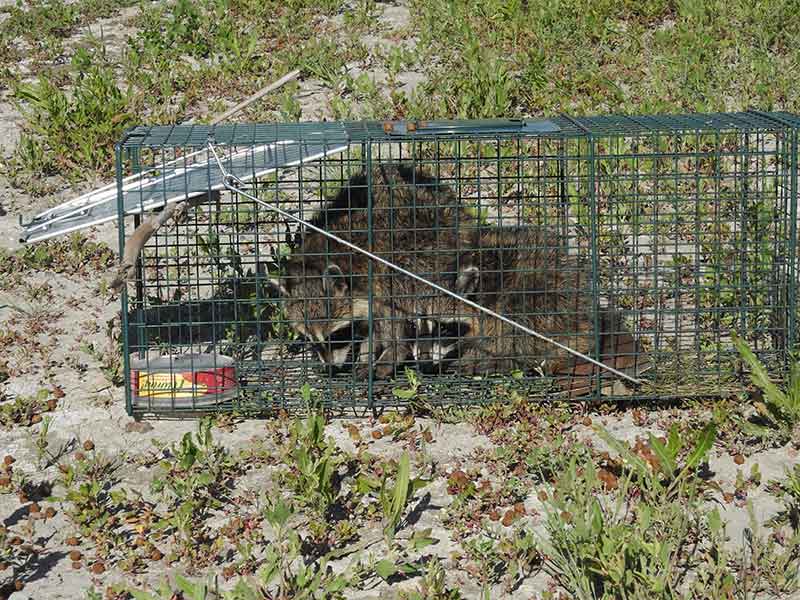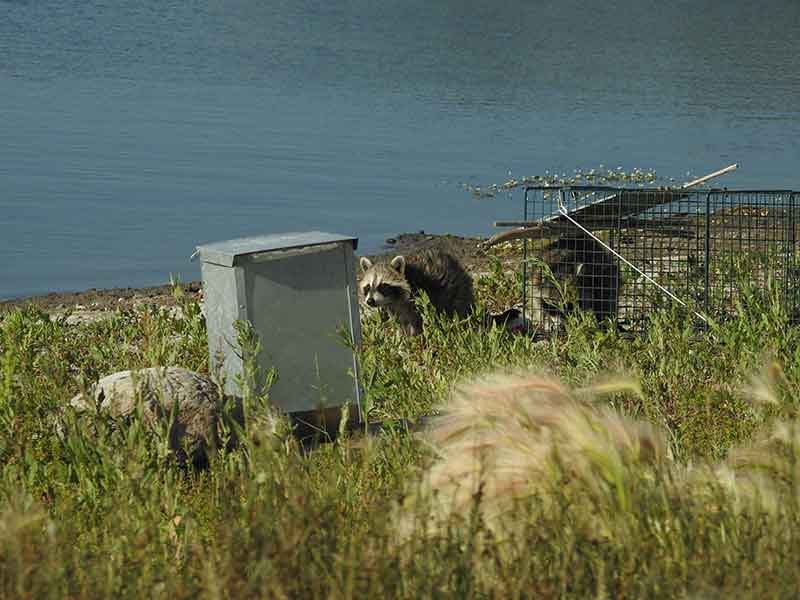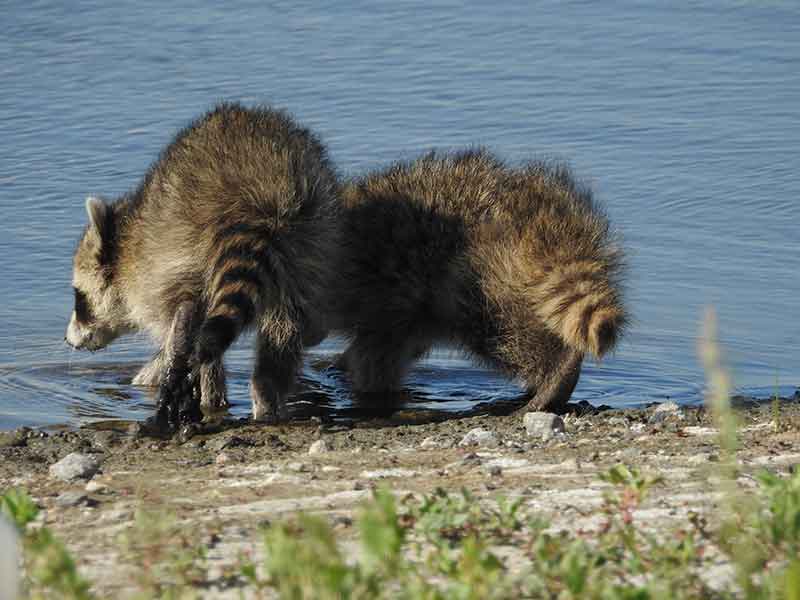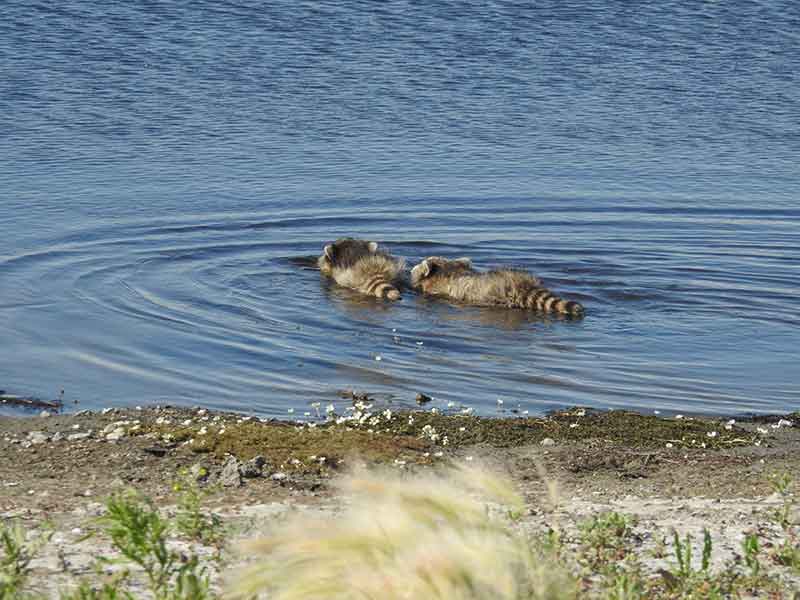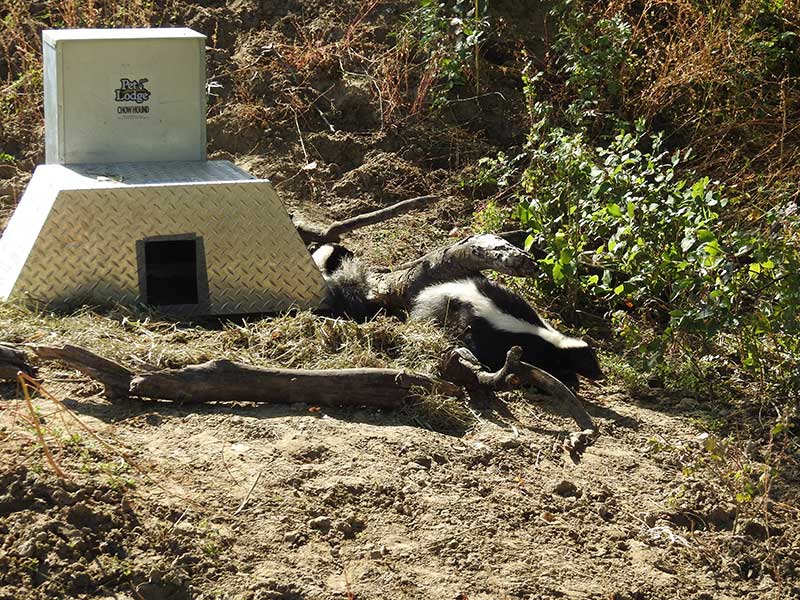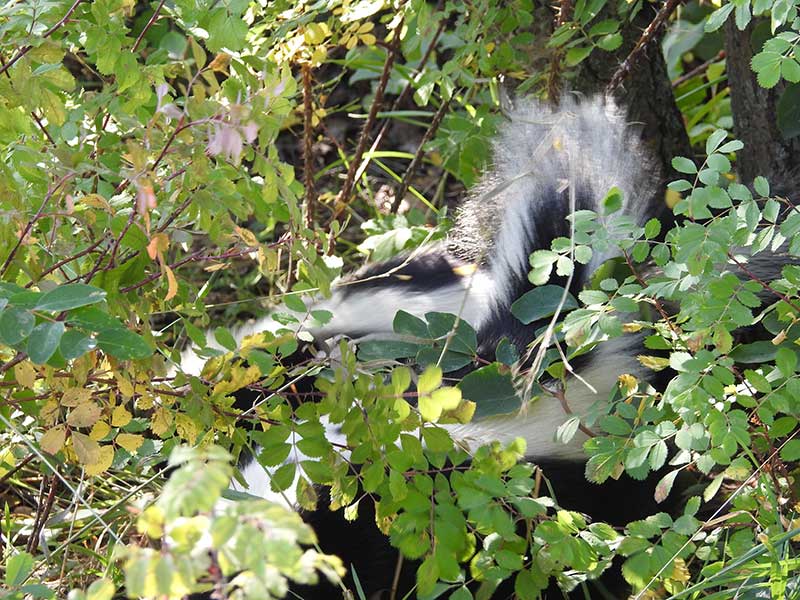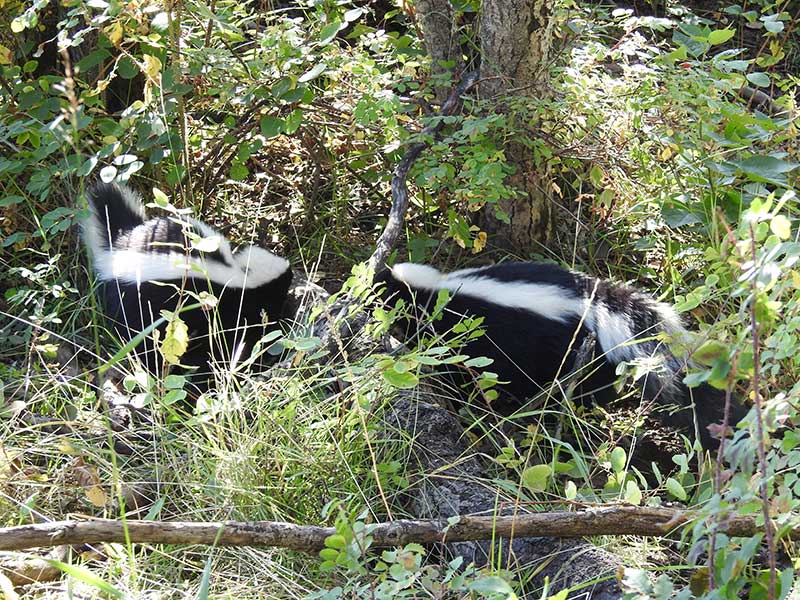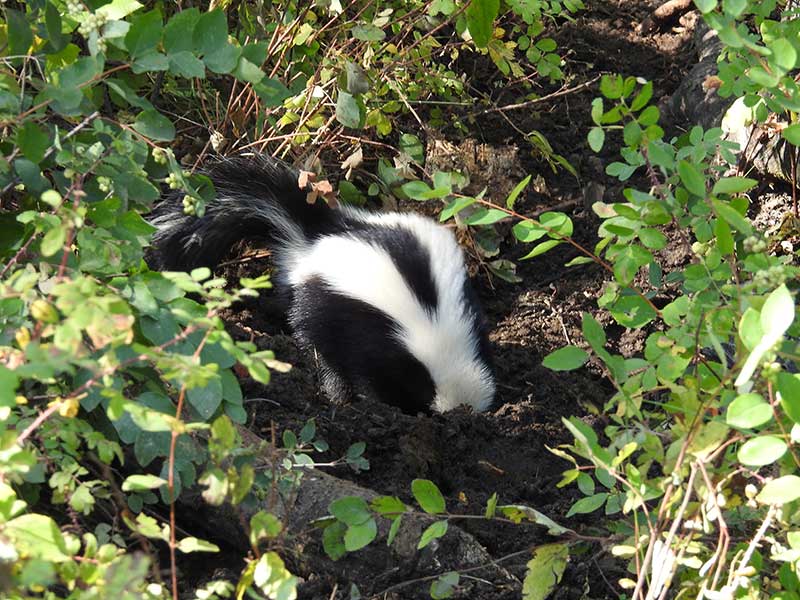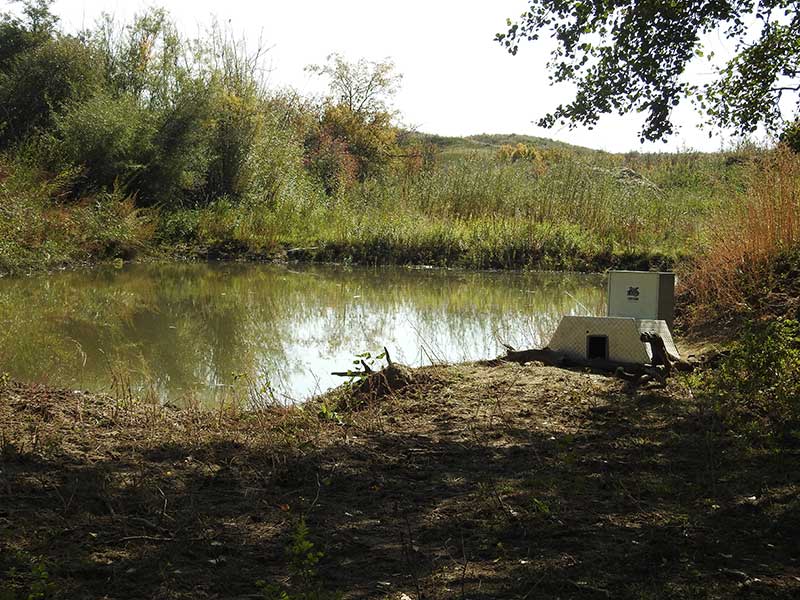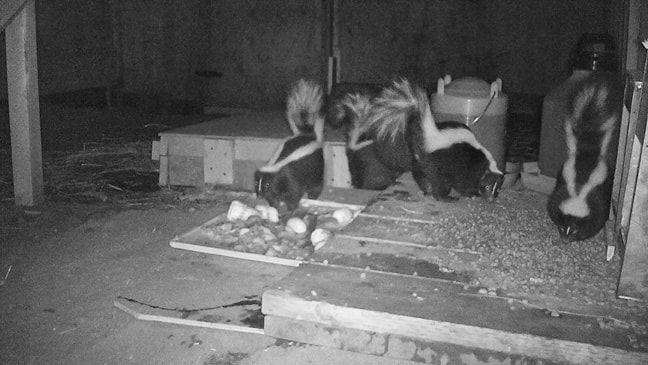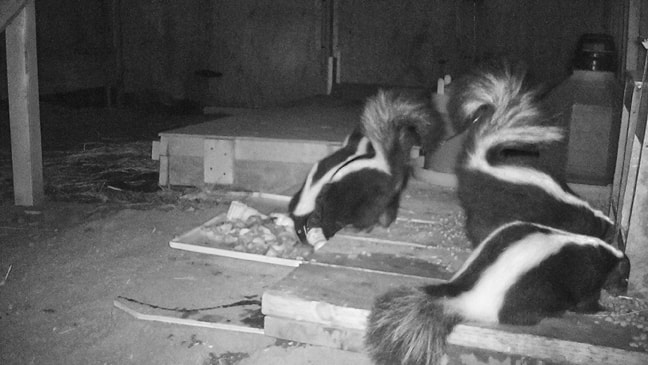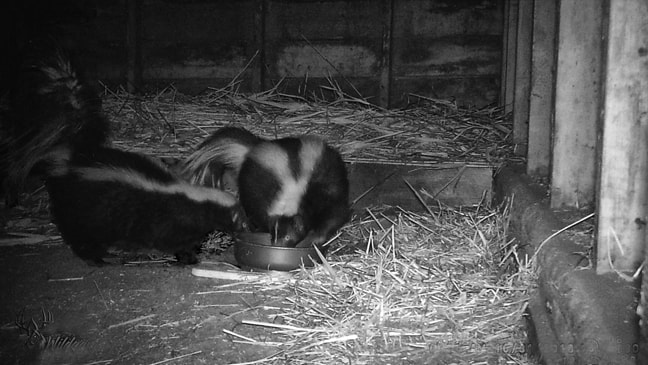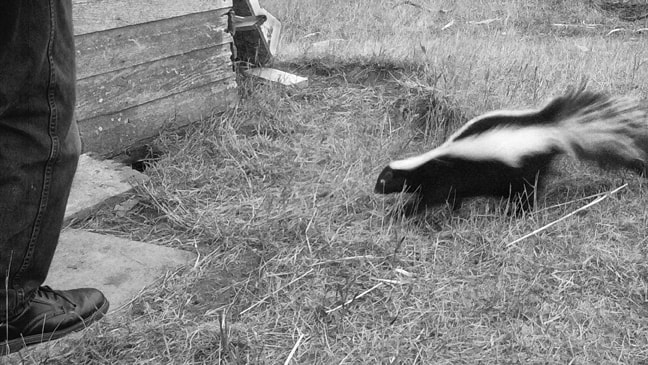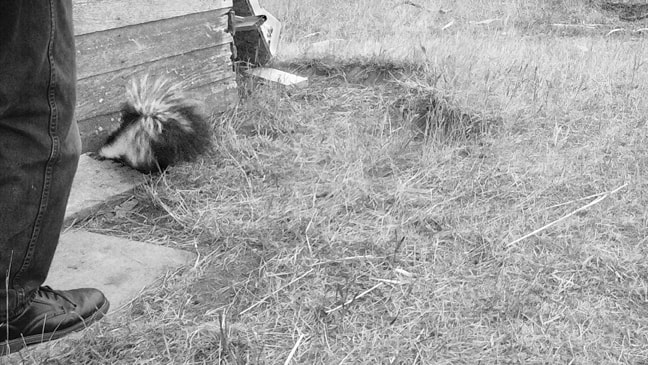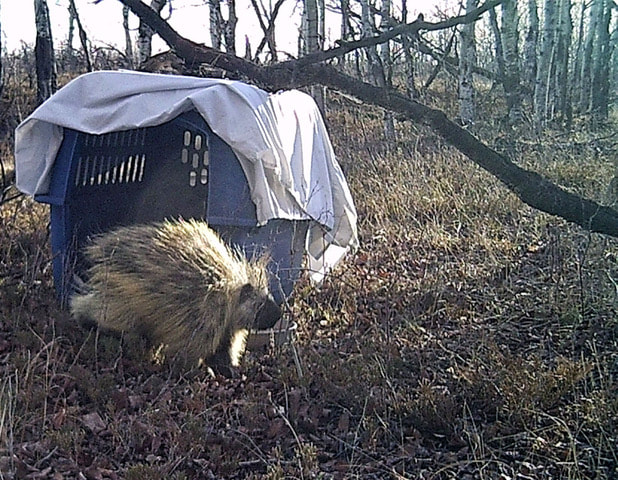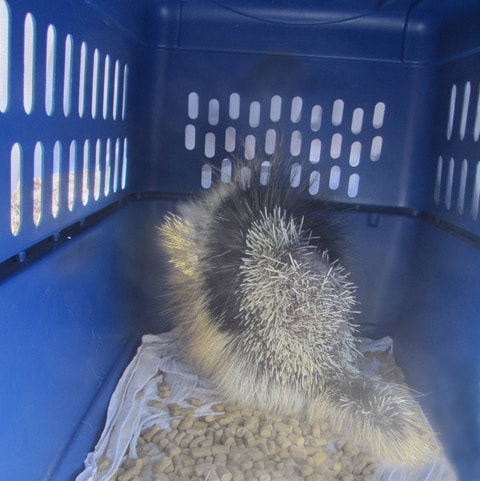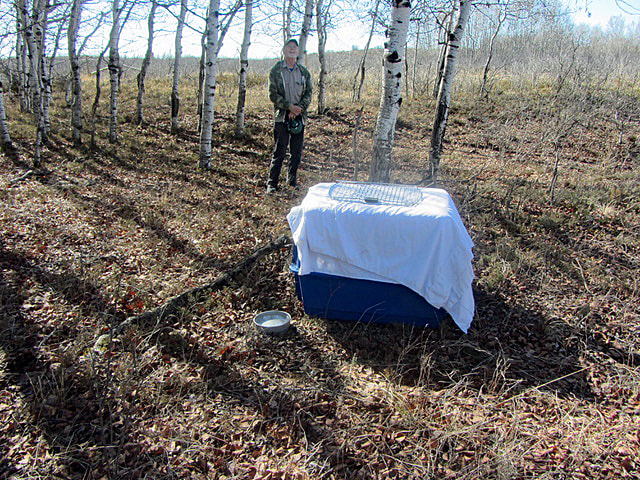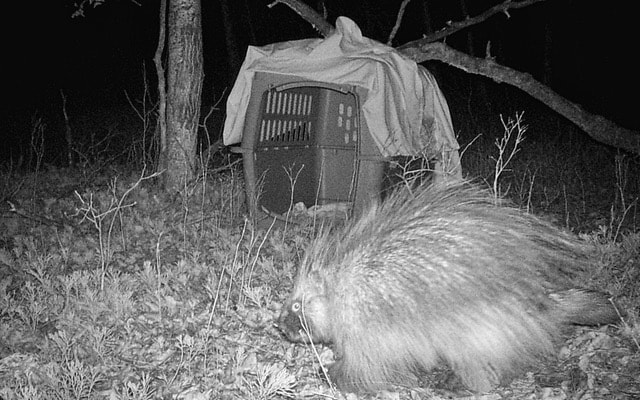Krugys.com
Sharie and David Krughoff
Sharie and David Krughoff
This RV was purchased in the fall of 2018. After extensive renovations, it became a wildlife rehabilitation facility. Striped skunks were cared for.
Heaven Scent Wildlife Rehabilitation became a Registered Canadian Charity in 2019. It was located on four secluded acres in the Village of Hawarden, Saskatchewan. Heaven Scent Wildlife Rehabilitation has been merged with Living Sky Wildlife Rehabilitation in Saskatoon, Saskatchewan, Canada.
Heaven Scent Wildlife Rehabilitation became a Registered Canadian Charity in 2019. It was located on four secluded acres in the Village of Hawarden, Saskatchewan. Heaven Scent Wildlife Rehabilitation has been merged with Living Sky Wildlife Rehabilitation in Saskatoon, Saskatchewan, Canada.
On June 16th of 2022, our first orphans of the season were rescued (4 females and 4 males). They're sweet and gentle. Mature teeth indicated milk replacer wasn't necessary. With enthusiasm, they dove into mixed vegetables.
The orphan below arrived at the same time. We never mix intakes like this. Groups or individuals must be quarantined for a couple of weeks.
A few days later these tiny males arrived. Their mother had been trapped and never returned. Her kits needed milk replacer immediately.
Caring for baby skunks is a lot of work. Towels in their enclosures must be replaced; often two or 3 times each day!
Sharie and I are working nonstop as more orphans arrive. When we have time we'll post more photos. We thank our donors that support our CRA approved charity.
Sharie and I are working nonstop as more orphans arrive. When we have time we'll post more photos. We thank our donors that support our CRA approved charity.
More orphans have been arriving. Thankfully, there are kind people that gather up these little angels and bring them to us as fast as possible.
Above; the tiny female on the lower left is just old enough to no longer require milk-formula. Now she enjoys cooked vegetables, canned mackerel and high quality dry dog food (soaked in warm water). We rarely give our charges names, but this one is remarkable. She ended up being the boss of all her den-mates. We named her Stomper!
Twenty three orphans are currently housed in this prerelease cage. When mature, they will be released into remote areas where they'll be safe as possible. The roof on the den in the last two images was being removed. In just a few minutes the den was disassembled. It was time to house the orphans in large dog kennels.
As youngsters begin to mature, large pet carriers enable friends to sleep and rest together. When it's time to release a group into a remote habitat, Sharie and I simply close the doors on specific kennels. The individuals remain relaxed when being carried to our Jeep. There has been no spraying and they remain relaxed during the drive to the release sites.
Gently, small groups are released into remote forested areas. Water is essential, enabling them to remain in ideal habitats.
The first series of images below, feature 13 striped skunks. They were born significantly later than this year's first group of 14 babies (born in May of 2021).
Two recently rehabilitated mature skunks were placed with them; they're mothering all of these little angels!
To increase their survival rate, it will be necessary to release them in late August or early in September.
Two recently rehabilitated mature skunks were placed with them; they're mothering all of these little angels!
To increase their survival rate, it will be necessary to release them in late August or early in September.
Above is one of the surrogate baby sitters!
The images below feature 14 striped skunks born in May of 2021.
The majority were orphaned when "neighbors" killed their mothers. In one case, the mother and some of her young were accidentally run over by a car.
Sharie and I will soon release these gentle creatures into remote habitats. They thrive when there's abundant fresh water and forested areas.
Grubs are one of their favorite foods! Grubs are available beginning in April and continue to be active well into August or September. Skunks can easily reach grubs that feed on the roots of grasses.
A few skunks will completely eradicate voles; a free service! We had hundreds of voles in the large raspberry patch on our acreage. Two adult skunks that lived under our tool shed fed on these voles. They eliminated all of them in one season.
The majority were orphaned when "neighbors" killed their mothers. In one case, the mother and some of her young were accidentally run over by a car.
Sharie and I will soon release these gentle creatures into remote habitats. They thrive when there's abundant fresh water and forested areas.
Grubs are one of their favorite foods! Grubs are available beginning in April and continue to be active well into August or September. Skunks can easily reach grubs that feed on the roots of grasses.
A few skunks will completely eradicate voles; a free service! We had hundreds of voles in the large raspberry patch on our acreage. Two adult skunks that lived under our tool shed fed on these voles. They eliminated all of them in one season.
Many thanks to WRSOS! (Wildlife Rescue Society of Saskatchewan). A staff member met me in Kenaston not far from our rehab facility in Hawarden, SK. This tiny female required immediate care. She was recently released into a spacious prerelease cage!
Another orphaned female about six weeks old.
They're best friends!
The orphaned male on the right protects and cares for this tiny female. They must remain in quarantine for 14 days, before moving into one of the outdoor prerelease cages.
Soon 14 orphans were moved into a roomy prerelease cage. The top of the den can be opened for cleaning and checking the health of each individual.
Three more orphans soon arrived!
A volunteer of WRSOS (Wildlife Rescue Society of Saskatchewan) gathered up a group of 7 orphaned baby skunks. These precious babies were terribly dehydrated and full of parasites. After caring for them day and night for several days they all survived! They have also moved to the outdoor prerelease cage. More photos will be added as time allows.
Orphaned striped skunk kits continue arriving at Heaven Scent Wildlife Rehabilitation. Most have also suffered from severe dehydration. Thankfully they have all survived and will soon be placed in spacious outdoor cages until they're old enough to care for themselves. (This routinely occurs when they are 16 week old. In some case a few additional weeks are required before they can care for themselves.)
Orphaned striped skunk kits continue arriving at Heaven Scent Wildlife Rehabilitation. Most have also suffered from severe dehydration. Thankfully they have all survived and will soon be placed in spacious outdoor cages until they're old enough to care for themselves. (This routinely occurs when they are 16 week old. In some case a few additional weeks are required before they can care for themselves.)
Four orphans were found on June 19th in Saskatoon. Jan Shadick the founder of Living Sky Wildlife Rehabilitation was able to capture them one by one; using a net!
Within a few days after feeding them and eliminating parasites with Ivermectin, they were moved to an outdoor prerelease cage. When they're 16 weeks old they will be released in a remote habitat where they will not have conflicts with humans!
Within a few days after feeding them and eliminating parasites with Ivermectin, they were moved to an outdoor prerelease cage. When they're 16 weeks old they will be released in a remote habitat where they will not have conflicts with humans!
Above is a photo of 3 orphaned striped skunks; one male and two females. Their mother was shot by a neighbor. Three young ladies managed to capture these tiny babies.
The skunks were in my care within 24 hours (on June 15th, 2021). Pedialyte, an oral electrolyte solution, was given to them every three hours. On the following day they were fed milk replacer. The male and two females have recovered quickly and accepted me as their surrogate mother.
The skunks were in my care within 24 hours (on June 15th, 2021). Pedialyte, an oral electrolyte solution, was given to them every three hours. On the following day they were fed milk replacer. The male and two females have recovered quickly and accepted me as their surrogate mother.
This male was rescued on September 18th, 2020. He was unable to walk for several months. We don't normally name animals cared for at our facility. Because late arrivals will require ongoing care until spring of 2021, we made exceptions. He was named Robin. Robin has made a full recovery and will soon be released in a remote ideal habitat.
We continue supplementing taurine and calcium along with diverse high quality foods. Robin's slow recovery made it necessary for him to be housed by himself. We placed a heat mat in his cozy den enabling him to remain warm throughout the winter.
The other 5 skunks that arrived late in 2020 will also soon be released.
The other 5 skunks that arrived late in 2020 will also soon be released.
Molly and Lily are on the far-right beside the feeder.
Lily was born in July of 2020.
Molly has taken good care of Lily. Both of these females have been bred (by Moe or Larry) and will give birth in May!
Louie, Moe and Larry have become best friends and will likely stay together when released.
Below is the same group of skunks that are in the prerelease cages above. (With the exception of Robin, the May born male that couldn't walk for several months.) He was skin and bone, but what a trooper! He's made a full recovery.
Below is the same group of skunks that are in the prerelease cages above. (With the exception of Robin, the May born male that couldn't walk for several months.) He was skin and bone, but what a trooper! He's made a full recovery.
On September 9th we received two more orphans; they had been trapped in a window well. Thankfully the property owners gave them a helping hand! (They're also July babies.)
On the next day we received another mature male that had been born in May. He was trapped in a window well for a very long time. He was rescued on September 18th, 2020. On arrival he was unable to walk or stand. Photos will be added when he's made a full recovery. Taurine and calcium are essential for his slow but steady improvement.
These last six skunks will be cared for throughout the winter. A release in March or April of 2021 will be required for their survival.
On the next day we received another mature male that had been born in May. He was trapped in a window well for a very long time. He was rescued on September 18th, 2020. On arrival he was unable to walk or stand. Photos will be added when he's made a full recovery. Taurine and calcium are essential for his slow but steady improvement.
These last six skunks will be cared for throughout the winter. A release in March or April of 2021 will be required for their survival.
The brother and sister received on August 18th are flourishing. They have been moved to a larger enclosure where they can play. As soon as both are eating solid food, they will join the mature female in the photo below.
Upon arrival at Heaven Scent on August 21st, this orphan couldn't stand or walk. The photo above was taken on August 28th and she has recovered her strength. She's eating four servings of mixed vegetables and sardines each day. Low carb, high quality dry dog food and reverse osmosis water is also provided.
This sweet gentle creature has made a remarkable recovery. Soon she'll be housed in a roomy outdoor prerelease cage. We make every effort to place skunks in ideal habitats—as far from humans as possible!
This sweet gentle creature has made a remarkable recovery. Soon she'll be housed in a roomy outdoor prerelease cage. We make every effort to place skunks in ideal habitats—as far from humans as possible!
After working with 46 orphaned baby striped skunks that were born in May of 2020—we received two "July babies" on August 18th. (photo above) The female's eyes are open. Her brother in the background is close behind with one eye opened!
His sister is caring for him in any way she can. She will be a wonderful mother. Thank heavens there are people that care enough to contact WRSOS.org and report orphaned or injured wildlife in Saskatchewan. Many also deliver the animals to the appropriate rehabilitation facility.
His sister is caring for him in any way she can. She will be a wonderful mother. Thank heavens there are people that care enough to contact WRSOS.org and report orphaned or injured wildlife in Saskatchewan. Many also deliver the animals to the appropriate rehabilitation facility.
The photos below are in chronological order for our early work during 2020.
Above, is our first orphan of the 2020 season. He's thriving on Fox Valley milk replacer for skunks. His eyes began opening today! (June 6th) He finds some solace in his plush/surrogate mother.
And then there were more; thankfully they have one another. The colored markings on their heads help me confirm that each baby has been fed.
These two are brother (left) and sister; of course, they share the same enclosure. When it's time to feed them, the male stamps his feet. This is likely his way of saying, "If you mess with me or my sister, you'll be sorry!" As time passes he will relax.
In this photo, a brother and sister are supervising my cleaning of their litter box. Yes, like cats they prefer to keep things tidy.
As I write this, we now have 41 orphaned striped skunks at our facility. There has been no time to take any more photos!
As I write this, we now have 41 orphaned striped skunks at our facility. There has been no time to take any more photos!
In July, fifteen of the 46 juveniles in care were placed in this prerelease cage. A trail camera was attached to the door. They have a plywood den full of lush straw for bedding. They all share the food and enjoy countless hours of play.
Striped skunks must be at least three months old before being released into the wild. So this will be their home until August. Each individual will "tell us" when their ready. Suddenly, they will become restless. We have several remote release sites thanks to the generosity and compassion of landowners.
And then there were more!
Thankfully we finished our second prerelease cage just in time! It's much larger than our chainlink enclosure.
Below are photos from early 2020, 2019 and late 2018. We assisted other Saskatchewan Wildlife Rehabilitators while developing our facility and obtaining a Provincial wildlife rehabilitation license.
Sharie and I are building more prerelease cages. Many thanks to Living Sky Wildlife Rehabilitation in Saskatoon! Jan Shadick and her volunteers built the 3X7 foot panels used in this new enclosure!
Images below were taken when building our wildlife rehabilitation facility and assisting other licensed rehabilitators.
A wooden fence was erected to enhance the security of prerelease cages. The four acre lot has mature Caragana on the borders; this also enhances security and privacy.
Local ranchers and farmers are providing a variety of remote, safe release sites.
In August, two young raccoons were released. The location provides secure den sites, abundant natural foods and fresh water.
This was a soft-release; food was supplied for several days. An automatic trail cam confirmed when they no longer required any further support.
The kits drank the fresh water with enthusiasm.
After only three days, they no longer required any assistance!
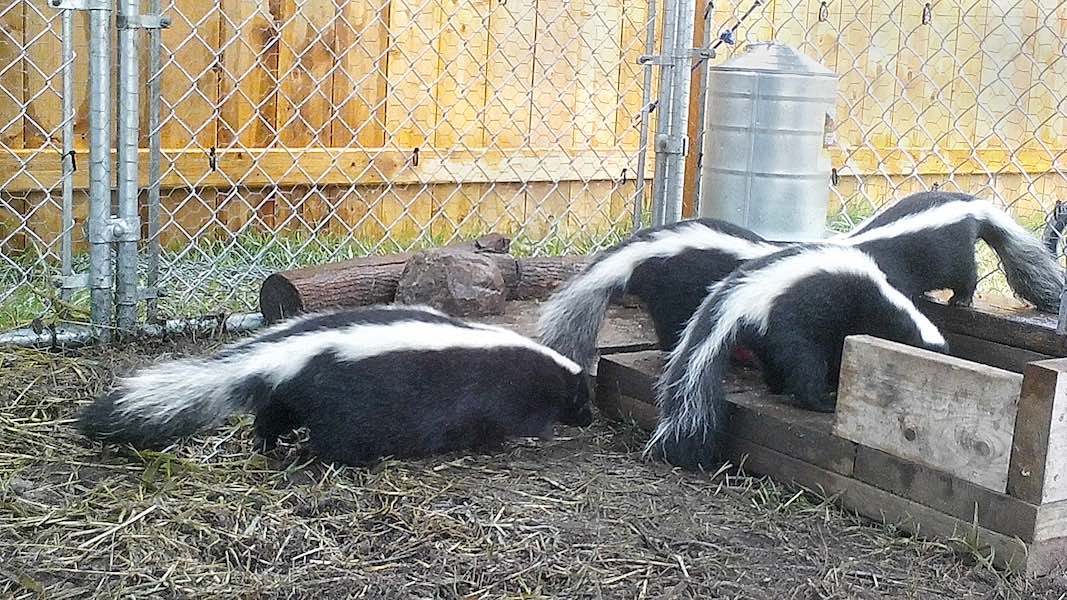
On September 19th, 2019 these four orphans were ready to be released. They were placed in an ideal habitat miles away from any people!
This was also a soft release. The following photos were taken during a gradual two hour process. It was essential that nobody would be left behind.
The door to the temporary enclosure was opened; this encouraged the youngsters to cautiously explore their surroundings.
They began eating grasshoppers and digging for other insects. Insects are a substantial portion of their diet. They also eat mice and voles.
Several years ago, Sharie and I had hundreds of voles living on our acreage. After a family of striped skunks established a den under our garden shed, balance was restored.
Several years ago, Sharie and I had hundreds of voles living on our acreage. After a family of striped skunks established a den under our garden shed, balance was restored.
The youngsters instinctively know how to dig for grubs!
Finally it was time for me to leave. Until they established their own den, the youngsters could live in the aluminum shelter attached to the dog food feeder. About four weeks earlier this temporary den and feeder was used to release nine orphaned skunks. They were totally independent after only 4 days.
Below are images from another soft release of ten rehabilitated orphans. They were placed into an ancient (but sturdy) hip roof barn; it's on a homestead likely established before the great depression. The youngsters could come and go freely but initially they chose to stay inside of the barn.
It was necessary for them to have abundant stores of fat if they were to survive our Saskatchewan winter! There were no adults to help them build a den. Two plywood dens lined with fresh straw and native grasses were constructed. (one can be seen behind them in the first two photos.)
It was necessary for them to have abundant stores of fat if they were to survive our Saskatchewan winter! There were no adults to help them build a den. Two plywood dens lined with fresh straw and native grasses were constructed. (one can be seen behind them in the first two photos.)
Soon two adults (below) were relocated to the same release site. They had become "problems" to the landowners. The adults were godsends and took charge of the orphans. The second plywood den is behind them.
In no time, all of the skunks were successfully hunting for natural foods!
In no time, all of the skunks were successfully hunting for natural foods!
The youngsters dug several exits and entrances under the foundation of the barn.
Their health and overall progress was verified during my last visit to the release site. A game camera that captured this photo and others in the barn were also removed. These cameras are used routinely to verify that releases are successful.
This mature female porcupine was attacked by a coyote in 2019. Injuries were extensive.
Jan Shadick (founder of Living Sky Wildlife Rehabilitation in Saskatoon) made an heroic effort and saved her life.
It was an honor to help Jan place this trouper into a remote poplar forest west of our facility.
Dry rodent chow and fresh water was supplied until she no longer required any support.
Dry rodent chow and fresh water was supplied until she no longer required any support.
I checked on her progress during the next few days.
She's doing great and I hope to see her with healthy babies in 2020.
